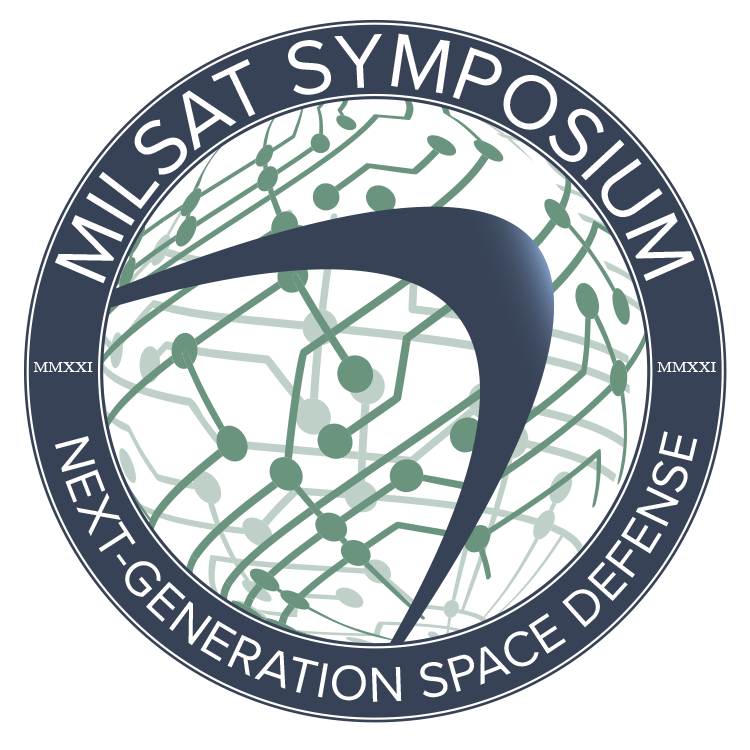


System Engineer, SATCOM
U.S. Army Support Contractor
Syed Akbar, System Engineer, SATCOM, U.S. Army Support ContractorMr. Akbar is currently working as a DoD contractor supporting the US Army on SATCOM architecture and terminal development. Mr. Syed Akbar has over 35 years of SATCOM industry experience in design and development of SATCOM architectures and terminal development. Mr. Akbar is responsible for leading a team of engineers specializing in mobile SATCOM and broadband wireless networks. Mr. Akbar’s specializes as a communications systems engineer. Previously he was the lead architect on the US Army CERDEC Distributed Standard Terminal SOTM working group. Previous projects include the US Army Distributed Broadband SOTM X-band Terminal, Small Aperture X-band SATCOM-On-The-Move (SAXBA) BFT Terminal, Point to Point and Point to Multipoint broadband wireless system, JTRS GMR systems engineering and integration, the design and development of the Future Combat System (FCS) Network Management system and independent research and development projects to support X, Ka and Q-band SATCOM-On-The-Move terminals for use by the DoD to support Battle Command on the move, Intelligence and Situation Assessment missions. He was a key member of the design team for a worldwide commercial satellite network for the US Army logistics community. This network was based on C, Ku and L band terminals. Mr. Akbar was also the Alico team leader for the development of the future communications architecture of the Tactical Internet. This future Tactical Internet architecture included design of terrestrial and satellite networks based on WGS, A-EHF and MUOS, and Inmarsat satellites. Prior to joining Alico Systems in 2002 Mr. Akbar worked for TRW for 24 years. His last assignment at TRW was as Communications Systems Business Unit Director. Previous assignments included; Program Director of the US Army EIS project which first introduced the original BFT system in Bosnia and Kosovo, the UTACCS (STACCS) Program Manager, and as a Project Manager for the TDRSS Autotrack Processing System.
Education: BSEE from Northrop Institute and an MSEE degree from California State University, Los Angeles.

President
And One Technologies
Dr. Eric Anderson, President, And One TechnologiesEric Anderson is President of And One Technologies and an angel investor in emerging space and IoT. He has contributed to dozens of space products, missions, and programs within small and large companies, government and academia. He currently supports technology and business aspects of several space, near-space, and air system developments with an emphasis on the delivery of data and services via new technologies, channels, and business models.
As Chief Technologist for Space at Moog, he helped lead the company’s space business and collaborated with worldwide colleagues on business strategy, technology and innovation across multiple markets. Eric was part of the leadership team at the nationally-recognized small company CSA Engineering, serving several years as President. He earned BS, MS and Ph.D. degrees in Aeronautics and Astronautics at MIT, was on the technical staff at Jet Propulsion Laboratory, worked at Sikorsky Aircraft and serves as board chair for the Kenya-focused non-profit The Kilgoris Project.
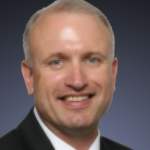
Senior Director, Business Development
Leonardo DRS
Gus Anderson, Colonel (Ret.), US Army, Senior Director, Business Development, Leonardo DRSGus Anderson served in the U.S. Army for 29 years as a Telecommunications Corps officer. During that period he commanded numerous tactical and strategic communications organizations, to include the 509th Signal Battalion, Vicenza, Italy, and the Regional Signal Group SHAPE, NATO HQ (Belgium). During his military career he also served as an Associate Professor of Philosophy at the United States Military Academy, and as the military speechwriter for two Secretaries of Defense. He retired as a Colonel in 2008.
Currently Gus Anderson leads DRS’ Global Enterprise Solutions (GES) business development organization. Gus has been with DRS for 10 years. His initial assignments were as a program manager, overseeing satellite networks supporting NATO forces in the Balkans; Coalition forces in Iraq and Afghanistan; and networks supporting other U.S. Federal and International agencies. In the past several years, Gus’ efforts have turned to business development, helping grow customer and market understanding of DRS’ Information and Communications Technology Ecosystem – a global network that provides secure managed satellite and terrestrial services to major DoD, US Federal, and international agencies.
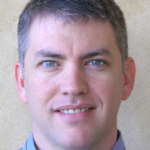
Vice President of Technology
Kratos Space
Chris Badgett, Vice President of Technology, Kratos SpaceMr. Chris Badgett is vice president of Technology for Kratos Space. In this role, he sets vision, technology strategy and direction for a portfolio of Kratos Space products. This includes secure and protected virtual satellite ground solutions for military and commercial applications. Prior to Kratos, Mr. Badgett served in the Air Force as a weapons engineer in the Air Force Research Lab. Chris has also worked in the Space Development and Test Wing as a program manager for a satellite system developed by Ball Aerospace. Mr. Badgett holds a BS in Electrical Engineering from University of Tennessee and an MS in Space Systems from the Air Force Institute of Technology.

Founder and Chief Executive
Rocket Lab
Peter Beck, Founder and Chief Executive, Rocket LabPeter Beck is the founder and chief executive of Rocket Lab, the world’s leading dedicated small satellite launch provider. Rocket Lab provides end-to-end mission services, including complete satellite build and launch solutions, that provide rapid, frequent and reliable access to space. Rocket Lab has been launching since May 2017, delivering satellites to orbit for commercial and government customers, including DARPA, NASA, the United States Air Force and more.
Since founding the business in 2006, Peter has grown Rocket Lab to become a globally recognized industry leader in space and a billion-dollar company employing hundreds of world-class engineers. In addition to creating Electron, the world’s first fully carbon-fiber orbital launch vehicle, Peter also oversaw the development of the world’s first and only private orbital launch range, located on New Zealand’s Māhia Peninsula. He played a crucial role in establishing international treaties and legislation to enable orbital launch capability from New Zealand.
Under Peter’s guidance, Rocket Lab will launch thousands of small satellites to orbit, enabling vital science, research, and services from orbit including weather monitoring, communications, technology demonstrations, and Earth-observation.
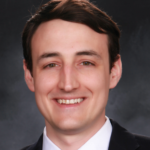
VP Product Management
Isotropic Systems
Brian Billman, VP Product Management, Isotropic SystemsBrian joined Isotropic Systems in its early days in 2017 and currently leads the Product Team ensuring successful productization of Isotropic’s ground-breaking technology. His expertise in the design and development of mmWave communication, radar, and electronic warfare systems, cultivated during his years at Northrop Grumman, has helped Isotropic push the envelope in solving their customers’ most challenging requirements.
Most recently, at L3Harris Specialty Applications Division, Brian led the hardware design team in successful delivery of a wide variety of unique, rapid turnaround specialty products for government customers.
Brian received his B.S. in Electrical Engineering from Bucknell University and his M.S. in RF Electrical Engineering from Johns Hopkins University.
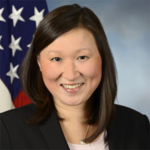
Chief Strategy Officer
HawkEye 360
Kari Bingen, Chief Strategy Officer, HawkEye 360Kari is the Chief Strategy Officer at HawkEye 360, the first commercial company to use formation-flying satellites to create a new class of radio frequency (RF) data and analytics. She is guiding the company through an evolving space landscape and growing market for RF data and analytics, and focused on how such capabilities can support national security users and a wide array of industries.
Previously, Kari served as the Deputy Under Secretary of Defense for Intelligence and Security (Deputy USD(I&S)), after being unanimously confirmed by the U.S. Senate in May 2017. The USD(I&S) establishes policies and priorities for the defense intelligence and security enterprises (including the DIA, NGA, NRO, NSA, and DCSA); manages an annual budget of over $54 billion, including military intelligence and joint military-national intelligence programs; and oversees the defense intelligence and security workforce of over 120,000 personnel. Kari began the realignment of defense intelligence and security investments to address National Defense Strategy priorities, guided the Department’s AI/ML pathfinder, and elevated the Department’s focus on personnel and industrial security.
Prior to DoD, she was the Policy Director on the House Armed Services Committee and staff lead for its Strategic Forces subcommittee, advising members of Congress on defense policy, program, and budget matters. Prior to entering government, Kari specialized in national security space issues, working with U.S. defense and intelligence community clients, first as a space systems analyst at SRA International’s Adroit C4ISR Center, and then as a senior space policy analyst at the Aerospace Corporation.
Kari is a non-resident Senior Adviser at the Center for Strategic & International Studies (CSIS) and a member of the Blue Origin, Beacon Global Strategies, and CalypsoAI advisory boards. She was a commissioner on the CSIS Task Force on Technology and Intelligence. She is passionate about “paying-it-forward” as an Adjunct Assistant Professor at Georgetown University and as a member of the Common Mission Project Board of Advisors. She is a graduate of the Massachusetts Institute of Technology with a degree in Aeronautics and Astronautics, and a 2002 NRO Technology Fellow.

VP of Strategy and Product Development
SES Government Solutions
Mike Blefko, VP of Strategy and Product Development , SES Government SolutionsMike Blefko joined SES Government Solutions in November of 2015. He primarily works on O3b business opportunities for SES GS for the US Government. His career spans many facets of satellite and communications. Highlights include Northrop Grumman section leader working on a $500M NYC wireless network, Advanced Wireless Antennas LLC antenna company entrepreneur, SATCOM systems engineering lead, wireless designer, and antenna designer. He has contributed to satellite, Wi-Fi, WiMAX, Microwave antenna and RF networks that benefit Department of Defense – SOCOM, CENTCOM, AFRICOM, PACOM, DTS-PO, Intelligence, Homeland Security, public safety, civil communications networks, and government municipalities.
Mike is well versed at SATCOM and wireless products and networks design. He is Shipley proficient and a systems engineering disciple. Projects in which he has had a major role include O3b high throughput low latency Gbps services to austere locations for the USG – actually deploying to locations in Iraq, and Africa to perform installations and demonstrations, NYC Private wireless network covering all of NYC with 2 Mbps in the five boroughs, SPAWAR SOFTACS Deployable Node-Medium (SDN-M) baseband terminal engineer for USG tactical comms, Navy CBSP maritime SSV and ULV terminal designer, DoD microsat engineer and salesperson at X, Ku and Ka bands, ORBCOMM Low Earth Orbit designer and earth station Gateway installer at UHF, Corpus Christi municipal Wi-Fi designer and deployment engineer, Texas Department of Public Safety Data and Voice network featuring interoperable voice networks over CISCO solutions, and Secondary Surveillance Radar antenna designer and field engineer for FAA landing system.
Mike combines business development experience, with systems engineering training, and antenna design background to grasp and present complex systems for the benefit of federal, state, and local customers.
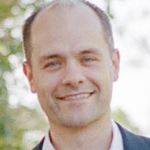
Vice President of Business Development
Relativity Space
Josh Brost, Vice President of Business Development, Relativity SpaceJosh is the Vice President of Business Development at Relativity Space. In this role, he leads all of Relativity’s Business Development and Customer Mission Management efforts. Prior to joining Relativity, Josh spent 9 years at SpaceX where he was the Senior Director of Government Business development in charge of all new US Government Business. Earlier is his career Josh also worked as a Consultant at the Boston Consulting Group and as an Aerospace Engineer at Boeing. Josh earned a Bachelor’s and a Master’s degree in Aerospace Engineering from Arizona State University and The University of Washington respectively and a Master’s in Business Administration from Harvard Business School.
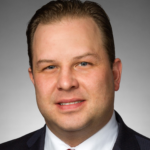
Senior Director, Military Space Mission Strategy
Lockheed Martin
Eric Brown, Senior Director, Military Space Mission Strategy, Lockheed MartinEric Brown is the Senior Director of Mission Strategy for Lockheed Martin’s Military Space business, working with the US Government and its allies to develop space solutions relating to missile warning / missile defense, MILSATCOM, position / navigation / timing (PNT), space control, space domain awareness, and tactical missions. Mr. Brown leads Lockheed Martin’s efforts in this domain to combine the company’s investments in future capabilities with those of teammates in industry, academia, labs, and the Government to establish new architectures in response to emerging threats to space and mission challenges. Based on the criticality of space to today’s warfighting environment, Mr. Brown coordinates across Lockheed Martin’s domains (e.g., aircraft, missiles, mission systems) to provide the infrastructure that enables Joint All-Domain Operations (JADO). This includes leadership for Lockheed Martin Innovation Partners, the company’s initiative to engage, accelerate, and onramp non-traditional partners to programs of record.
Prior to joining Lockheed Martin Space, Mr. Brown led PwC Strategy&’s global space community of interest, providing strategic consultation on topics of competitive positioning, new technology introduction, and inorganic strategy to executives across aerospace, defense, space, industrial, and technology sectors. Previously, he supported various agencies across the intelligence and defense communities in the development of mission and organizational strategies and concepts of operations to respond to evolving threats and critical national requirements.
Mr. Brown holds a Bachelor of Arts from Davidson College, a Master of Arts in US National Security Policy from Georgetown University, and an MBA from Duke University’s Fuqua School of Business. He currently sits on the Board of Directors for Astrotech Space Operations.

Director of the Space Portfolio
Defense Innovation Unit (DIU)
Brigadier General Steve Butow, Director of the Space Portfolio, Defense Innovation Unit (DIU)Steve “Bucky” Butow is the Director of the Space Portfolio at the Defense Innovation Unit (DIU). He joined the team in 2015 as an early plank owner when DIU was known as the Defense Innovation Unit Experimental (DIUx) and helped establish the organization’s operating locations in Silicon Valley; Boston, Massachusetts; and Austin, Texas.
Prior to joining DIU, Butow was the Vice Chief of the Joint Staff, California Military Department with responsibilities including cybersecurity, incident awareness and innovation. He is a former Commander of the 129th Rescue Wing at Moffett Federal Airfield, CA, where his responsibilities included organizing, training, equipping, and maintaining 970 combat-ready forces and $1 Billion dollars of MC-130P aircraft, HH-60G
helicopters and special mission equipment supporting the U.S. Air Force’s combat rescue and personnel recovery missions. He has additionally served as the Deputy Director of the Joint Search and Rescue Center for U.S. Central Command in 2005, and as Chief of Personnel Recovery for U.S. Air Forces Central in 2007 supporting Operations IRAQI and ENDURING FREEDOM. He has more than 3,500 flying hours in T-37, T-38, C-130, HC-130 and MC-130P aircraft. In his reserve capacity, Butow is a Brigadier General serving part time as a Special Assistant to the Director, Air National Guard in a federal status.
As a researcher with the Search for Extraterrestrial Intelligence (SETI) Institute, Butow worked on instrument concepts for Mars surface soil analysis at NASA Ames Research Center in Mountain View, CA. He later served as co-principal investigator for a series of airborne science missions for which he was recognized for outstanding achievement and contributions to the Space Science Division in 1999 and received an Ames Honor Award as a member of an Astrobiology Mission Project Team in 2000.
Butow graduated from San Jose State University with a B.A. in Physics & Astronomy and earned a M.S. in Management with specialization in Air and Space Strategic Studies from the University of Maryland. He has also completed executive courses at Harvard’s John F. Kennedy School of Government, and was a member of the National Leadership Preparedness Initiative (NPLI) Cohort 16. Butow is a lifetime member of the Honor Society of Phi Kappa Phi for academic achievement.

Optical Communications Lead
Space Development Agency - SDA
Mike Butterfield, Optical Communications Lead, Space Development Agency - SDA
Department of Management Science & Engineering - Lecturer
Stanford University
Bruce Cahan, Department of Management Science & Engineering - Lecturer, Stanford UniversityBruce Cahan is a Lecturer in Stanford University’s Department of Management Science & Engineering (MS&E), an Instructor in at Stanford’s Hasso Plattner Institute of Design (known as the d.school), a CodeX Fellow at Stanford’s Center for Legal Informatics, a Stanford mediaX Distinguished Scholar, a Faculty Fellow with Stanford’s Center for Human Rights and International Justice and Affiliated Faculty with Stanford’s Graduate School of Business’ Corporation and Society Initiative.
Bruce researches, teaches, designs and applies new theories for creating financial and
insurance marketplaces that improve transparency, fairness and regional quality of life systems. Bruce’s courses at Stanford include: Sustainable Banking (CEE 244A), Understanding the Buy Side of Wall Street (MS&E 449), Ethics of Finance and Financial Engineering (MS&E 148) and Redesigning Finance (d.school)
Bruce is also CEO and co-founder of Urban Logic, a nonprofit that harnesses finance and technology to change how corporate and government systems think, act and feel. He is an Ashoka Fellow social investment entrepreneur. Bruce’s current projects at Urban Logic range from creating a commodities exchange for outer space (the Space Commodities Exchange), to establishing a bridge between the formal and informal economies of developed and developing countries.
Mr. Cahan practiced finance law serving major corporate and government clients at the international law firm of Weil Gotshal & Manges in New York City for 10 years, and was merchant banker in Hong Kong (2 years), prior to pursuing his financial innovation research and technology projects through Urban Logic.
Bruce’s earned his Bachelor of Science in Economics from The Wharton School at The University of Pennsylvania, and his Juris Doctor from Temple Law School. Bruce is licensed as a lawyer in California, New York and Pennsylvania.
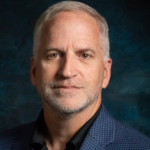
Chief Strategist and Chairman of the Board
Planet Federal
Robert Cardillo, Chief Strategist and Chairman of the Board, Planet FederalRobert is Chief Strategist and Chairman of the Board at Planet Federal where he is responsible for supporting strategic decision-making for future products and services, driving meaningful partnerships, and increasing the utility of commercial innovations for global government agencies. Robert has a distinguished career as former Director of the National Geospatial-Intelligence Agency (NGA) from 2014-2019, where he successfully transformed the Agency’s future value proposition through innovative partnerships with the growing commercial geospatial marketplace. Prior to NGA, Robert served in leadership positions with the Chairman of the Joint Chiefs of Staff, the Defense Intelligence Agency, and the Office of the Director of National Intelligence. From 2010 to 2014, Robert managed, edited, and delivered the President’s Daily Brief to President Obama and Vice President Biden – over 1400 editions – while also serving on the Deputies Committee of the National Security Council.

President of Space, Training and Cybersecurity
Kratos Defense and Security Solutions
Phil Carrai, President of Space, Training and Cybersecurity, Kratos Defense and Security SolutionsPhil Carrai is President of the Space, Training and Cybersecurity division of Kratos Defense and Security Solutions, Inc, where he is responsible for all aspects of business operations, sales, mergers and acquisitions. Kratos Defense is an approximately $650 million public company focusing in Aerospace and Defense products and services.
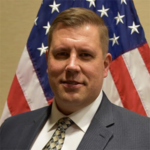
Director of Satellite Communications and Deputy to the Commander
Space and Missile Defense CMD
Michael A. Chandanais, Director of Satellite Communications and Deputy to the Commander, Space and Missile Defense CMDMr. Mike Chandanais serves as the Director of Satellite Communications and Deputy to the Commander for U.S. Army Space and Missile Defense Command’s Satellite Operations Brigade. He is responsible for Wideband and Narrowband MILSATCOM global payload management as well as all satellite communications planning at the Command’s Regional Satellite Communications Support Centers. He also serves as the Operational Project Lead and Operational Project Manager for DoD’s Wideband Satellite Communications Joint Production Memorandums of Understanding and directs the Command’s delivery of MILSATCOM through DoD’s other international partner agreements.
Mr. Chandanais is a retired Army Signal Officer. Over a 23-year career he served in a variety of assignments at various echelons beginning with the 11th Armored Cavalry Regiment (Blackhorse), and the 141st Signal Battalion in Germany. Later he was assigned to the 101st Airborne Division at Fort Campbell, Kentucky, where he served with the 187th Infantry Regiment, Division G6, 3rd Brigade S6 (Rakkasans), and 501st Signal Battalion. As a field grade officer his tours included assignments with 78th Division, 69th Air Defense Artillery Brigade, Third Army, and Mission Command Center of Excellence. His final tour was with USASMDC where he led the Regional SATCOM Support Division. Since 2004, he was the communications planner for several key partnership events include the 60th Anniversary of D-Day Commemoration Ceremonies, US Israel missile defense partnership program culminating with Juniper Cobra 2005, and several allied communications interoperability experiments including Talon Strike, Omni Fusion, and Allied Auroras.
Following Mr. Chandanais’ retirement from active duty in 2014, he accepted an appointment as a Department of Army Civilian serving first as the Chief of Plans for G6 Narrowband Division and later selected as the Director of Satellite Communications.
Mr. Chandanais is a graduate of Michigan State and Webster Universities, Combined Arms and Services Staff School, and the U.S. Army Command and General Staff College.
He and his wife Nicole have been married for more than 27 years and have two daughters.

Senior Manager for Civil and Environmental Space
Raytheon Space Systems
Shawn Cochran, Senior Manager for Civil and Environmental Space, Raytheon Space SystemsMr. Shawn Cochran is a Senior Manager for Civil and Environmental Space in Raytheon’s Space Systems organization. Space Systems manufactures the VIIRS instrument for the NASA/NOAA Joint Polar Satellite System.
Prior to joining Space Systems, Mr. Cochran was the Chief Scientist for the Joint Polar Satellite System (JPSS) Common Ground System (CGS) and the head of the Mission Data Services program. The Mission Data Services organization provides a “system of systems” view for the novel use of data products generated from the sensors onboard the JPSS spacecraft, identifying new ways that JPSS can become more efficient and effective in meeting the data consumers’ requirements. The Mission Data Services team works with the US Government agencies, NATO allies, and industry partners to find ways to use existing capabilities to meet existing or emerging mission requirements for a variety of use cases.
Mr. Cochran’s role is not limited to VIIRS and JPSS, as he works across business units within Raytheon which develop a variety of capabilities including air and missile defense, large land- and sea-based radars, and systems for managing command, control, communications, computers, cyber, intelligence, surveillance, and reconnaissance.
Before joining JPSS CGS, Mr. Cochran was the head of Systems Engineering / Operations for the United States Missile Defense Agency’s Integration and Operations Center at Schriever AFB, Colorado. His primary focus has always been large scale systems-of-systems integration with a sub area focus on command and control systems. He has been with Raytheon since 2004.
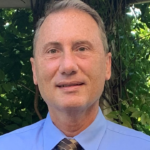
Director, Aerospace and Satellite Solutions
Amazon Web Services - AWS
Clinton Crosier, Maj Gen (R), Director, Aerospace and Satellite Solutions, Amazon Web Services - AWSMaj. Gen. (Ret.) Clint Crosier is Director of the AWS Aerospace & Satellite Solutions business, responsible for providing commercial and government customers with tailored, secure, and cost-effective cloud solutions for building satellites, conducting space and launch operations, and reimagining space exploration.
Prior to joining AWS, Crosier served 33 years in the U.S. Air Force and U.S. Space Force, retiring as a Major General. During his career, he operated GPS, SatCom, and missile warning satellite constellations, launched Atlas and Titan rockets putting national security payloads in orbit for the National Reconnaissance Office and Air Force Space Command, deployed to the Middle East during Operation Enduring Freedom as USSCENTCOM’s Director of Space Forces, and led Requirements and Strategy Development for the entire US Air Force. He has commanded at the Squadron, Group, and Wing levels, and held leadership roles as a US Senate Staffer and in the office of the Under Secretary of Defense for Intelligence.
Prior to retiring from military service, he was the lead planner and architect of the stand-up of the US Space Force, the first new military service in 72 years.
Crosier earned his degree in aerospace engineering from Iowa State University. In 2020 he was inducted into the ISU Aerospace Engineering Hall of Fame. He has also earned a Masters of Business Administration from the University of Southern Mississippi (Summa Cum Laude), and a Master’s of Science in National Security Studies from the US Naval War College with Highest Distinction. His military academic awards include earning Distinguished Graduate and Top Graduate accolades at Squadron Officer School, Air Command and Staff College, and the Naval War College.
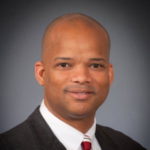
SVP, Space Capture
Maxar Technologies
Robert Curbeam, SVP, Space Capture, Maxar TechnologiesRobert Curbeam is a former NASA astronaut and a retired US Navy captain, with over 35 years of operational and industry experience in aerospace and defense. He is currently the Senior Vice President for Space Capture at Maxar Technologies.
During his 23-year naval career, Curbeam served as a Naval Flight Officer amassing over 3000 hours in numerous aircraft and spacecraft. He is a graduate of the Navy Fighter Weapons School (TOPGUN) and the US Naval Test Pilot School. During his time in as an astronaut, he flew three spaceflights and completed seven spacewalks. He also served as a Spacecraft Communicator (CAPCOM) and in various positions in the NASA Mission Assurance organization in the Astronaut Office, and at the Johnson Space Center and NASA Headquarters. His industry experience includes functional and profit and loss positions at ARES Corporation, Raytheon and Northrop Grumman.
Curbeam earned a Bachelor of Science degree in Aerospace Engineering from the United States Naval Academy, a Master of Science degree in Aeronautical Engineering from
the Naval Postgraduate School, and a Degree of Aeronautical and Astronautical Engineering from the Naval Postgraduate School.
He is chairman of the Board of Directors of the Challenger Centers for Space Science Education and a member of the Board of Directors of the Association for Naval Aviation. He is also a member of the U.S. Naval Academy Alumni Association and the Association of Old Crows.

VP Strategic Solutions
Mynaric
Tim Deaver, VP Strategic Solutions, MynaricTim Deaver will serve as VP Strategic Solutions in the Mynaric Washington D.C. area office and will be responsible for creating and marketing customer solutions for Mynaric’s industry leading Laser Communication Terminals. Tim leads a team focused on Customer Success, from requirements capture, to solutions development, customer support and works closely with Mynaric Sales team across critical Government and Commercial markets.
Prior to joining Mynaric, Tim worked for Airbus U.S. Space and Defense for 3 years leading their US Government focused small satellite capture and engineering efforts.
Mr. Deaver also worked for SES and SES Government Solutions for over 10 years where he led the business and product development activities.
Mr. Deaver led the SES GS team which won the USAF Space and Missile System Center (SMC) Pathfinder 1 contract for the purchase of near-end of life transponders, SMC’s Pathfinder 3 contract for prelaunched capacity on an SES satellite, the NASA Global-scale Observation of Limb and Disk (GOLD) hosted payload launched on SES-14 (built by Airbus Defense and Space) in 2018 and the FAA’s Wide-Area Augmentation System (WAAS) payload launched on SES-15 in 2017. Mr. Deaver also served as the program manager and eventually the Program Executive for the Commercially Hosted Infra-Red Payload (CHIRP) program which was launched in September 2011 aboard the SES-2 spacecraft.
Prior to joining SES, Mr. Deaver served 22 years in the U.S. Air Force in various space operational, acquisition and policy positions. Tim holds a Bachelor’s Degree in Electrical Engineering from the University of Nebraska, a Master’s Degree in Electrical Engineering from the University of Colorado and a Master’s Degree from Air University.
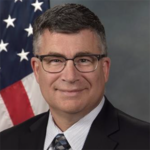
Director of the Force Design Integration Office
U.S. Space Force’s Space Warfighting Analysis Center
Michael Dickey, Director of the Force Design Integration Office, U.S. Space Force’s Space Warfighting Analysis CenterMr. Michael Dickey is Director of the Force Design Integration Office at the U.S. Space Force’s Space Warfighting Analysis Center at Peterson AFB, Colorado. In this role, he integrates analytic activities that inform future force design decisions for a combat effective enterprise for the newest military Service. He leads a core team of experts that orchestrate planning and implementation activities and processes within the U.S. Space Force and across partner organizations to transform to an enterprise-focused, threat-informed approach to developing and delivering space capabilities. Mr. Dickey is a Highly Qualified Expert in active civilian service for up to five years.
Mr. Dickey served a 21-year active duty career, retiring as a Colonel in 2009. He entered the Air Force through the Reserve Officer Training Corps in 1987 holding engineering and operations assignments in space, missile defense, and aircraft systems. He served in line, staff and command positions at the laboratory, squadron, group, major command and headquarters levels.
As a civilian in the private sector, Mr. Dickey worked on the development of space system solutions that leveraged the technology and economics of small spacecraft to meet mission needs.
EDUCATION:
1992 Squadron Officer School, Maxwell AFB, AL (Distinguished Graduate)
1996 US Air Force Test Pilot School, Edwards AFB, CA (Distinguished Graduate) 1998 Air Command and Staff College, Maxwell AFB, AL (Distinguished Graduate) 2003 Master of Security Studies, Air War College, Maxwell AFB, AL
2006 Joint Forces Staff College, Norfolk, VA
2006 Penn State University, Executive Management Program, State College, PA
2008 Center for Creative Leadership, Developing the Strategic Leader, CO Springs, CO
CAREER CHRONOLOGY:
Commander, 3d Space Operations Squadron, Schriever AFB, CO Student, Air War College, Maxwell AFB, AL
Chief, Program Support Division, Deputy Directorate for Global
Operations, J-3, Joint Staff, Pentagon, Washington, DC
AWARDS AND HONORS:
Defense Superior Service Medal
Air Force Legion of Merit
National Reconnaissance Office Gold Medal
Defense Meritorious Service Medal with one Oak Leaf Cluster Air Force Meritorious Service Medal with one Oak Leaf Cluster Air Force Commendation Medal with one Oak Leaf Cluster Joint Service Achievement Medal
Air Force Achievement Medal with one Oak Leaf Cluster Raymond L. Jones Award
NASA Group Achievement Medal
PROFESSIONAL MEMBERSHIPS AND ASSOCIATIONS:
Life Member, Air Force Association
Associate Fellow, American Institute of Aeronautics and Astronautics Member, Space Force Association
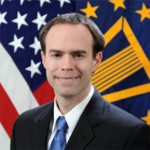
Chief Architect
Department of the Force and Space Force
Preston Dunlap, Chief Architect, Department of the Force and Space ForceMr. Preston C. Dunlap is the Chief Architect of the Department of the Air Force. First to hold this position, Mr. Dunlap is charged with working across the Air and Space Force, and in partnership with the Department of the Navy and Army, to transform technology development and acquisition so the Air Force not only designs, develops, and buys the right mix of future capability but does so more rapidly and with the power of interoperability. Key family of systems initiatives include Multi-domain Operations, Advanced Battle Management System, and Next Generation Air Dominance.
Prior to this position, Mr. Dunlap was the Executive for National Security Analysis of the Johns Hopkins University Applied Physics Laboratory, the nation’s largest University Affiliated Research Center.
There he oversaw national security defense and intelligence programs at all levels of classification and managed an extensive and diverse organization of program managers, technologists, analysts, and operators. He led programs in support of the Vice President of the United States, Cabinet Secretaries, the Secretary of Defense, and the Director of National Intelligence. Mr. Dunlap served on the corporate Executive Leadership Team of the Laboratory. At the request of Congress, he also testified before the full House Armed Services Committee.
Before joining the Laboratory in 2014, Mr. Dunlap was a career member of the Senior Executive Service and served four Secretaries of Defense. He held the roles of Director of Program Analysis, Chief of Staff to the Senate-confirmed Director of Cost Assessment and Program Evaluation, Senior Analyst for Intelligence, Surveillance, and Reconnaissance (ISR) and Space Programs, and Deputy Director of the Simulation and Analysis Center. He shaped the Department of Defense five-year multi-billion dollar budget plans as well as associated Intelligence Community and National Nuclear Security Administration plans.
Mr. Dunlap led the Long Range Strike Front End Assessment and started the B-21 bomber program as well as future weapons, hypersonics, intelligence, electronic warfare, and communications capabilities for Secretary Gates and Secretary Panetta. He served in a lead role of the Strategic Choices and Management Review for Secretary Hagel where he identified options and risks required to meet the Budget Control Act that would reduce the budget by over $50 billion per year. He also participated in the 2006, 2010, and 2014 Quadrennial Defense Reviews.
Prior to government, Mr. Dunlap held various roles in the private sector as an early member of a rapidly growing technology startup company as well as an agile software development firm.
He earned a Master of Science degree with honors in Operations Research and Management Science from George Mason University and a Bachelor of Arts degree in both Computer Science and Political Science from Duke University. Mr. Dunlap is Lean Six Sigma certified and is a graduate of the Harvard University National Security Senior Executive program and the Federal Executive Institute and served on the Board of the Massachusetts Institute of Technology Seminar XXI program. Mr. Dunlap’s awards include the Secretary of Defense Medal for Meritorious Civilian Service and multiple citations of both the Secretary of Defense Medal for Exceptional Civilian Service and Secretary of Defense Award for Excellence.

Vice President of Business and Strategy
Virgin Orbit,
Stephen Eisele, Vice President of Business and Strategy, Virgin Orbit,As Vice President of Business and Strategy at Virgin Orbit, Stephen Eisele is responsible for leading all sales and strategies around commercial and international business efforts, engaging with the civil, commercial and the new space small satellite community. Part of his initiatives includes initiating the Virgin “VIP” Program (or Virgin Interplanetary Program) for satellite missions to journey beyond LEO to GTO, the Moon, Mars and beyond. In addition, he has spearheaded Virgin Orbit’s international spaceport architecture, setting up spaceport partnerships around the world including in the UK, Japan, Italy and many more to be announced.
Prior to joining Virgin Orbit, Eisele served as a senior business development executive for Surrey Satellite Technology US, where he helped lead Surrey’s business growth opportunities through strategic partnerships, including OTB Missions.
Stephen previously served as Vice President of Space Services Inc, a commercial space holdings and investment company, where he managed multi-million dollar companies and start-ups; served as head of sales and marketing for Excalibur Almaz (EA), an international space exploration company created to provide routine, affordable access to and from space; and also worked as the Marketing Director for the X PRIZE Foundation’s Google Lunar Lander Challenge in 2007. Prior to working with entrepreneurial aerospace firms, Stephen worked as a senior analyst for DFI International (now Avascent Group) in Washington, DC, managing and researching numerous projects for Fortune 100 aerospace and defense firms.
Stephen holds a bachelor of arts in international studies from the Johns Hopkins University and a master of arts in international economics and strategic studies from the Johns Hopkins School of Advanced International Studies (SAIS) where he received the William C. Foster Award for “sound scholarship and a record of distinguished service and leadership.” He also holds a master’s certificate from the International Space University in space business.
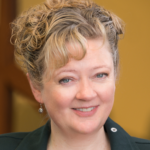
Sr. Director of Product Management
iDirect Government
Karen Emery, Sr. Director of Product Management, iDirect GovernmentKaren Emery serves as Sr. Director of Product Management for iDirect Government. In this role, she seeks to anticipate customer needs and drive the product strategy, development, and timely launch of new capabilities. She is fascinated by the intersection of innovation and effective problem solving, and she and her team are always interested in learning more about the customer experience. She has more than 20 years in product engineering, design and management, as well as operations experience.
Emery has a master’s degree in business administration from the University of Michigan’s Stephen M. Ross School of Business, Ann Arbor, and a bachelor’s degree in electrical engineering from Harvard University, Cambridge, Mass.
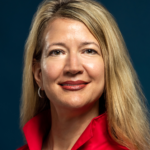
General Manager, Communication Technologies & Engineering Division
The Aerospace Corporation
Dr. Debra Emmons, General Manager, Communication Technologies & Engineering Division, The Aerospace CorporationDr. Debra L. Emmons is the General Manager of the Communication Technologies and Engineering Division at The Aerospace Corporation. In this role, she is responsible for leading a geographically distributed division of 200+ engineers and 30+ laboratories supplying expertise across the full range of communications and networking programs, technologies, and system architectures to Aerospace’s many customers. She also leads the strategy development for the Optical communications center, SPIDER providing solutions to customers across the space enterprise.
Prior to her current role, Dr. Emmons served as Associate General Manager of the Strategic Assessments & Studies Division in the Civil Systems Group, leading the line of business serving customers across all the NASA Science & Technology focused centers, universities, and non-profit entities. Within this line of business, she led strategic planning, new business development, and program development and execution.
Dr. Emmons is a skilled aerospace senior leader with technical, management and industry experience in the acquisition and development of advanced technology space systems. She has over 25 years of experience developing and leading cross-enterprise teams of technical experts to solve the nation’s toughest national security, civil and commercial space problems.
Dr. Emmons currently serves on the MILCOM organizing and technical program committee, and the IAF/IAC Space Communications & Navigation Committee (SCAN). She also served on the Board of Directors of the National Space Club, in Washington DC from 2010 through 2016. In the 2015-2016 term, Dr. Emmons served as the President of the National Space Club & Foundation.
Dr. Emmons was awarded a Ph.D. in Systems Engineering from The George Washington University. She earned an M.S. and a B.S in Electrical Engineering from Cornell University, Ithaca, NY. She was also awarded an MBA from Imperial College Management School, London, United Kingdom.

Head of Space Systems
Airbus U.S. Space & Defense
Debra Facktor, Head of Space Systems, Airbus U.S. Space & DefenseDebra Facktor is the Head of U.S. Space Systems for AIRBUS U.S. Space & Defense, Inc., reporting to the Chairman and CEO of Airbus U.S. She joined the company in March 2020 and is responsible for managing the two businesses within U.S. Space Systems: National Security Space and Space Exploration. She also represents Airbus on the board of Airbus OneWeb Satellites, a joint venture between Airbus and OneWeb operating a high-volume, high-speed satellite production facility in Florida, leveraging Airbus’ long standing heritage in satellite manufacturing.
Prior to joining Airbus U.S., Debra was Vice President and General Manager of Strategic Operations for Ball Aerospace, leading the company’s Washington DC operations, strategic development, and marketing and communications. Her extensive business experience includes serving as President and Owner of AirLaunch LLC, a small business that won funding from the Defense Advanced Research Projects Agency (DARPA) and as Vice President of Business Development and Strategic Planning for Kistler Aerospace Corporation, a company that was developing a privately-funded reusable launch vehicle for the telecommunications satellite and International Space Station commercial resupply markets. Earlier in her career, Debra was Chief of Moscow Operations for ANSER’s Center for International Aerospace Cooperation.
Debra is actively engaged as a board member, advisor and mentor in the aerospace community, with organizations such as the Intelligence and National Security Association (INSA), American Institute of Aeronautics and Astronautics (AIAA), Future Space Leaders Foundation, Brooke Owens Fellowship Program, Women in Aerospace and the International Women’s Forum. She serves on the Industrial Advisory Board of the University of Michigan aerospace engineering department and as an adjunct faculty member of the Johns Hopkins University systems engineering department. She is a fellow of AIAA and the American Astronautical Society (AAS) and an academician of the International Academy of Astronautics (IAA).
Debra received her bachelor’s and master’s degrees in aerospace engineering from the University of Michigan, and is an alumna of the International Space University summer session program in Strasbourg, France.

Assistant Research Professor
Johns Hopkins University
Dr. Gregory Falco, Assistant Research Professor, Johns Hopkins UniversityDr. Gregory Falco is an Assistant Research Professor at Johns Hopkins University where his lab, the Autonomy OWL, focuses on matters of assured autonomy, space system cybersecurity, space habitation and future satellite capabilities. His work on space cybersecurity has been incorporated into national policy and he actively works with government agencies, the military and private companies to improve their space asset resilience. Dr. Falco completed his PhD at MIT in Cybersecurity and was previously listed in Forbes 30 Under 30 for his contributions to Enterprise Technology.

Sr. Vice President of Technology
iDirect Government
Karl Fuchs, Sr. Vice President of Technology, iDirect GovernmentKarl Fuchs joined iDirect Government in 2004 as the Director of Sales Engineering, just as the satellite-based IP communications company was expanding its very small aperture satellite (VSAT) market presence into the federal government and international Internet Protocol (IP) networking world. He now works as the Sr. Vice President of Technology.
With more than 25 years of experience in technology and with the federal government, Fuchs leads iDirect Government’s team of federal sales engineers, hardware engineers, software engineers, and serves as chief architect for new product integration.
Prior to joining iDirect Government, Fuchs was Director of Systems Engineering at Nortel Networks, where he oversaw the Verizon account team of systems engineers, leading the design of IP, Frame Relay, Asynchronous Transfer Mode (ATM) and dense wavelength division multiplexing (DWDM) networks. Before joining Nortel, he designed IP and ATM networks for Sprint and the federal government.
Active in the satellite industry for more than 20 years, Fuchs has contributed editorial to numerous publications including Federal Computer Week, Institute for Defense and Government Advancement, COTS Journal, Military Information Technology, Via Satellite, MILSATCOM and Satellite Evolution Global. In addition, he has been a featured speaker at leading industry events including the DoD SATCOM User Workshop, ISCe, IBC, Pacific Telecommunications Council and Emergency Management Talks.
Fuchs holds a Bachelor of Science degree in electrical engineering from George Mason University, Fairfax, Va. and an MBA from Averett University, Danville, Va.
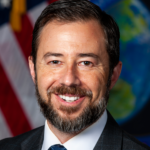
Director of Source Commercial and Business Operations
National Geospatial Intelligence Agency (NGA)
Dave Gauthier, Director of Source Commercial and Business Operations , National Geospatial Intelligence Agency (NGA)Mr. Gauthier is a senior government executive at the National Geospatial-Intelligence Agency (NGA) serving as Director of their Commercial and Business Operations Group in the Source Directorate. He also serves as the Chair of the newly-formed Intelligence Community Commercial Space Council. Previously, he was the NGA Chief Strategy Officer where he spearheaded strategic plans for a data-enabled workforce and artificial intelligence. Over the past 23 years, he has led various intelligence operations and programs across the U.S. Air Force, private industry, and government giving him experience with a variety of technical collection systems and analytic innovations. He is known for his role in maturing activity-based intelligence and his primary interests are model-driven collection, U.S. space policy, and innovations in remote sensing.
Mr. Gauthier has two Masters Degrees from the University of Colorado at Boulder in both Aerospace Engineering and Telecommunications Science; and he earned his Bachelor’s Degree in Electrical Engineering at the Rensselaer Polytechnic Institute (RPI) in Troy, NY.
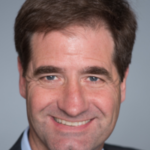
Managing Partner
In-Q-Tel
Tom Gillespie, Managing Partner, In-Q-TelTom Gillespie serves as a Partner on In-Q-Tel’s Investment Team and as Investment Lead for In-Q-Tel’s Field Technologies Practice, where he is responsible for identifying technologies that address challenges faced by the Intelligence Community. He is the Investment Team partner associated with IQT’s commercial space initiative, CosmiQ Works, and he has led a number of IQT’s investments in commercial space ventures, including launch vehicles, small satellite constellations, and space situational awareness. In addition, he has led IQT investments in the areas of robotics, materials, power sources, and autonomous systems, as well as several analytics investments.
Prior to IQT, Gillespie was a Strategy Consultant at Booz Allen Hamilton, serving clients in the financial services, aerospace, and government (national security and defense) sectors. Previously, he co-founded LaunchFuel, a venture commercialization firm that created, developed, and advised early-stage technology businesses; Gillespie also directed numerous business and technology strategy projects with Global 2000 clients for AT&T Solutions. Earlier experience includes positions in international privatization and the United States Congress, where he focused on financial services, telecommunications, space, and foreign affairs issue areas.
Gillespie earned a B.A. from Stanford University and an M.B.A. from the Wharton School of the University of Pennsylvania.

CEO
ManSat
Katherine Gizinski, CEO, ManSatKatherine is the Chief Executive Officer for the ManSat Group. ManSat is the world’s largest commercial provider of satellite spectrum and offers bespoke consultancy services in spectrum regulatory matters.
Before joining ManSat, Katherine worked with U.S. defense contractors to bring commercial satellite and terrestrial communication technologies to austere environments in support of military, diplomatic, first responder, and commercial initiatives.
Katherine serves on the Board of Directors for Space & Satellite Professionals International (SSPI) and mentors entrepreneurs through Techstars Starburst Space Accelerator.
Katherine is a graduate of the International Space University’s Executive Space program and holds a Bachelor of Science degree in Commerce from the University of Virginia.
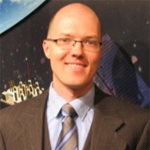
Vice President Technology
Parsons
Tyler Goudie, Vice President Technology, ParsonsTyler J. Goudie is Vice President and Chief Technologist within the S&GS Business Unit at Parsons with over 20 years of systems engineering and software development experience within the aerospace industry. At Parsons, he has contributed as a Systems/Solutions Architect and Developer on a number of high-profile Satellite Programs including Enterprise Ground Services (EGS). Tyler is a Parsons product expert and currently leads all Technical Vision within the S&GS Business Unit Products and Technology.
He began his career working small satellite designs for Space Dynamics Lab and AFRL and continued to refine his experience with satellite systems engineering working with the Aerospace Corporation on high level system satellite designs. Tyler further pursued his experience through requirements gathering, design documentation, verification and validation, and customer interaction at LASP, CCAR, and Raytheon. He worked on a prototype instrument for the International Space Station and on Modeling and Spacecraft Simulation for the Advanced Extremely High Frequency (AEHF) Satellite under Lockheed Martin. Tyler also worked on Force Protection and Intelligence software development programs for the Air Force and Intelligence Communities.
Tyler moved into project leadership roles for small, medium, and large sized teams and led them to successful delivery of their respective software systems, keeping high profile contracts on schedule and under budget. Tyler maintains technical expertise in the areas of satellite systems, systems engineering, development, testing, modeling and simulation, and high-level architecture design.
Finally, Tyler leads many high budget Parsons Product Opportunities and Technical Proposals through business development, sales, and strategic partnerships leveraging Parson’s COTS/GOTS product line solutions across the S&GS enterprise.
Education
Tyler holds an M.S. in Aerospace Engineering from University of Colorado, Boulder (2004) and a B.S. in Electrical Engineering from Utah State University (2003).

Principal Analyst
NSR - Northern Sky Research
Brad Grady, Principal Analyst, NSR - Northern Sky ResearchMr. Grady has been involved in the Satellite Communications industry since 2005, joining NSR in 2010. Through his 10 years at NSR, he has risen from a Junior Analyst to NSR’s Principal Analyst for Mobility Markets, focusing on Commercial and Government SATCOM Markets. In that role, he leads NSR’s research on “anything that moves.” He leads a group of NSR Analysts focused on Aeronautical and Land-Mobile opportunities, and authors NSR’s Maritime SATCOM Markets, Energy SATCOM Markets, and Government and Military Satellite Communications. He regularly provides his insights and analysis to NSR’s single-client consulting practice, and is also a regular contributor to leading industry publications and forums.
Before joining NSR, Mr. Grady served as the Sustainable Development Projects Coordinator Intern with the Global VSAT Forum where he worked regularly with the GVF Secretariat and the Regulatory Working Group on many of the forum’s initiatives. Working with the Regulatory Working Group, Mr. Grady helped develop and implement various RWG initiatives aimed at protecting satellite spectrum, increasing awareness of satellite services, and working to promote regulatory reforms across the globe.
Mr. Grady holds a Bachelor’s degree in Economics from the University of Maryland, College Park where his research focused on renewable/alternative energies, Information Communication Technologies and the Satellite Communications Industry. He works in NSR’s Washington DC office, with his wife, daughter, and two dogs.
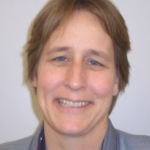
VP of Intel Programs
Stellar Solutions
Janet Grondin, VP of Intel Programs, Stellar SolutionsJanet Grondin is Vice President of Intel Programs for Stellar Solutions, Inc., where she is responsible for overseeing numerous mission domains within the Intelligence Sector, including satellite space and ground systems acquisition, systems engineering and integration, and ops support. Prior to this role, she was Vice President of Defense Programs after serving as Director of Emerging Space Capabilities at Stellar Solutions. Grondin is a former Northrop Grumman Director and a retired USAF Colonel with over 30 years of experience in navigation, remote sensing, satellite communications, launch, space superiority, and launch ranges. Her education includes a B.S. in Aeronautical Engineering (magna cum laude) from Embry-Riddle Aeronautical University, a M.S. in Aeronautical Engineering from the AF Institute of Technology, a M.S. in Strategic Studies from Air War College, and a M.S. in Military Operational Art & Science from Air Command and Staff College. She is the Immediate Past President of the Women In Defense Greater Los Angeles Chapter (WID-GLAC) and an Executive Board Member of the National Defense Industrial Association Greater Los Angeles Chapter (NDIA-GLAC).

Partner
Bessemer Venture Partners
Tess Hatch, Partner, Bessemer Venture PartnersTess is a vice president at Bessemer Venture Partners fostering entrepreneurship of frontier technology, specifically the commercialization of space, drones, autonomous vehicles, and the future of agriculture and food technology. She wants to invest in technology and people who believe as strongly as she does that frontier technology will develop solutions for societal problems.
Tess earned a Bachelor’s degree in aerospace engineering from the University of Michigan and a Master’s degree in aeronautics and astronautics engineering from Stanford. She went on to work for Boeing and then SpaceX where she worked with the government on integrating its payloads with the Falcon9 rocket. She remains close to her alma mater through co-teaching a class at Stanford for professors interested in commercializing their research, serving on the board of advisors for the Stanford Technology Ventures Program and founding the Stanford Aero/Astro Alumni Association. Tess was recently named Forbes’ 30 Under 30 in Venture Capital.
Tess is passionate about space exploration and imagines a future where we all travel to space. She hopes to make the trip herself soon.

CTO
Orbital Wave
Emma Hatton, CTO, Orbital WaveEmma Hatton is the CTO of Orbital Wave with 18 years of experience in the space industry gained across the sectors of government, ESA, academia and industry. She has worked on all aspects of the satellite payload data lifecycle, ranging from designing, developing, testing and automating near-real time processors through to the commercial exploitation of such data. Emma’s core expertise lies in designing data flows within mission critical space systems.
Emma has appeared on panels before and offers a lot of insight into the space sector. She has worked in high performance computing centres and has experience in large-scale data processing, as well as the use of machine learning in EO data processing. Cloud computing and AI is also very much being used within Orbital Wave’s business model. She has also worked in the defence sector and understands the key issues.

CTO
KSAT, Kongsberg Satellite Services
John Heskett, CTO, KSAT, Kongsberg Satellite ServicesJohn Heskett serves as the Chief Technology Officer for KSAT. John has 20 years’ experience developing algorithms and system solutions for Space to Ground communications links and satellite ground stations. John specializes in Modem and DSP design but also has experience with ground processing and data transport solutions for both TT&C and Mission Data links.
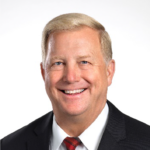
President and CEO
SES Government Solutions
Pete Hoene, Brig. Gen., USAF (R), President and CEO , SES Government SolutionsBrigadier General Peter F. Hoene, USAF (Retired) was named President and CEO of SES Government Solutions on January 19, 2015. In his previous role, he served as the Corporate Vice President for Development for SES Government Solutions, headquartered in Reston, VA. As Corporate Vice President for Development, he worked with United States warfighters and other government users to help determine their requirements and offer communications support, hosted payload opportunities, and network solutions. He then communicated those requirements to the SES parent organization to take advantage of existing on-orbit SES fleet capacity, or to influence future satellite designs.
Pete retired from the U.S. Air Force in 2010 as Brigadier General, following 30 years of service. He is a graduate of the U.S. Air Force Academy, as well as a distinguished graduate of both the Air Command and Staff College and the National War College. He holds two master’s degrees and served in a wide variety of Space, Command and Control, and research, development, acquisition, test, staff and command assignments. In his last active duty position, Hoene served as the Defense Information Systems Agency (DISA) Program Executive Officer for Command and Control, where he managed a portfolio of Joint and Coalition Command and Control and Information Sharing programs.
Prior to his DISA assignment, he was Commander, 350th Electronic Systems Wing (C2&ISR Wing), Electronic Systems Center, Hanscom Air Force Base, Mass., where he managed a portfolio of 49 command and control (C2), ISR, Space and Cyber programs valued at more than $9 billion.
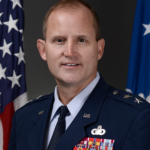
Deputy Assistant Secretary
United States Air Force
Maj. Gen. Cameron Holt, Deputy Assistant Secretary, United States Air ForceMaj. Gen. Cameron G. Holt is the Deputy Assistant Secretary for Contracting, Office of the Assistant Secretary of the Air Force for Acquisition, Technology and Logistics, Washington, D.C. He is responsible for all aspects of contracting relating to the acquisition of weapon systems, logistics, and operational support for the Air Force and provides contingency contracting support to the geographic combatant commanders. He leads a highly skilled staff of mission-focused business leaders supporting warfighters through $825 billion of Space, Global Power/Reach and Information Dominance programs. He also oversees the training, organizing and equipping of a workforce of some 8,000 contracting professionals who execute programs worth more than $65 billion annually.
Prior to this assignment, General Holt served as the Commander, Air Force Installation Contracting Agency (AFICA), Office of the Assistant Secretary of the Air Force for Acquisition, Wright-Patterson Air Force Base, Ohio. He led an over 700 personnel agency with a total contract portfolio of $55 billion. In this capacity, he directed enterprise-wide installation strategic sourcing efforts for the Air Force and oversaw $9.1 billion in annual obligations for mission and installation requirements.
General Holt received his commission through the ROTC at the University of Georgia in 1990. He has experience in the full spectrum of acquisition and contract management across four major commands, Headquarters U.S. Air Force, U.S. Air Forces Central Command and the Joint Staff. General Holt is a joint qualified officer with multiple deployments in support of Operation Enduring Freedom.
EDUCATION
1990 Bachelor of Business Administration, International Business, University of Georgia, Athens
1996 Distinguished graduate, Squadron Officer School, Maxwell AFB, Ala.
1999 Master of Arts, Organizational Management, George Washington University, Washington, D.C.
2005 Distinguished graduate, Master of Military Operational Art and Science, Air Command and Staff College, Maxwell AFB, Ala.
2008 National Security Fellowship, Kennedy School of Government, Harvard University, Cambridge, Mass.
2014 Enterprise Leadership Seminar, Kenan-Flagler Business School, University of North Carolina at Chapel Hill
2018 Enterprise Perspective Seminar, Washington D.C.
ASSIGNMENTS
SUMMARY OF JOINT ASSIGNMENTS
MAJOR AWARDS AND DECORATION
Legion of Merit
Bronze Star Medal
Defense Meritorious Service Medal
Air Force Meritorious Service Medal with two oak leaf clusters
Air Force Commendation Medal with two oak leaf clusters
Air Force Achievement Medal with oak leaf cluster
OTHER ACHIEVEMENTS
2000 Secretary of the Air Force Professionalism in Contracting Award
2002 Aeronautical Systems Center Outstanding Contingency Contracting Officer
2003 Air Education and Training Command Professionalism in Contracting Award
2005 ACSC Dean’s Award for Outstanding Research, International Security Studies
2005 Secretary of the Air Force (Acquisition) Team of the Year
2006 Secretary of the Air Force (Acquisition) Team of the Year
2008 Walker Paper Award, Strategic Studies Quarterly, Air University
EFFECTIVE DATES OF PROMOTION
Second Lieutenant Aug.18, 1990
First Lieutenant Feb. 1, 1993
Captain Feb. 1, 1995
Major Feb. 1, 2002
Lieutenant Colonel March 1, 2006
Colonel Sept.1, 2010
Brigadier General Sept. 2, 2015
Major General Oct. 12, 2018
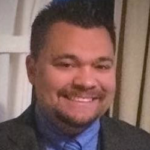
Operating Unit Chief Engineer
Northrop Grumman Mission Systems
Gary Javonillo, Operating Unit Chief Engineer, Northrop Grumman Mission SystemsMr. Javonillo re-joined Northrop Grumman Corporation’s Mission Systems (NGMS) Sector in 2017 as BACN Department Chief Engineer. In this role, Mr. Javonillo overseas a portfolio of programs for the military that provide Tactical Data Link (TDL) communications for both manned and unmanned platforms, across all branches of service and operational domains. These TDL services include bridging and range extension that provides unified situational awareness picture, spanning all theater U.S. forces, across Link-16, EPLRS, SADL, 524, and JREAP. Additional services include voice bridging and range extension for disadvantaged users, and tactical Internet Protocol (IP) using both Line of Site (LOS) and Beyond Line of Site (BLOS) technologies.
Prior to returning to NGMS, Mr. Javonillo held various positions of increasing responsibility at Northrop Grumman Corporation’s Aerospace Systems (NGAS) Sector in as a Communications Engineer for the Global Hawk Foreign Military Sale (FMS) Republic of Korea (ROK) and Japan programs.
Prior to re-joining NGMS, Mr. Javonillo held various positions of increasing responsibility at multiple companies including Northrop Grumman Information Systems (NGIS), Northrop Grumman Corporation’s Aerospace Systems (NGAS) Sector, the National Aeronautics Space Administration (NASA), and L-3 Communications Joint Operations Group. Mr. Javonillo is former enlisted and served for 6-years in the US Marine Corps where he worked as an avionics technician on AH-1W and UH-1N light attack helicopters. A Purple Heart veteran, he has deployed twice while serving in the US Marines, and 12 additional tours in combat as a civilian or government employee. His overseas assignments include postings in Iraq, Afghanistan, and Saudi Arabia among others.
His professional responsibilities include lead engineer for the Smart Node Pod program and forward deployed chief engineer for the Battlefield Airborne Communications Node at NGIS, lead communications engineer at NASA, and field engineer at L-3 Communications. Over the last 20-years, Mr. Javonillo developed a specialization in the design, development, and operational deployment of advanced tactical communications systems for the US Military. He is also owns and operates a real estate business.
Mr. Javonillo is a California native and graduated Magna Cum Laude from Embry-Riddle Aeronautical University while majoring in Aeronautics and Management. He also graduated Summa Cum Laude from the University of Phoenix while earning a MBA and is a member the 2015 class of Delta Mu Delta inductees in the Harvard International Business Scholars honor society.

Product Manager
Defense Innovation Unit - DIU
Capt. Nick Jernigan, Product Manager , Defense Innovation Unit - DIUNick Jernigan is a Product Manager at Defense Innovation Unit (DIU). Currently, he manages both the Orbital Outpost and multi-Orbit Logistics families of DIU prototypes. Prior to his time at DIU, Nick spent three years at the Space and Missiles Systems center working on next-generation space logistics and hypersonic technology for the Air Force. Nick has a master’s degree from MIT in Operations Research and is a distinguished graduate of the Air Force Academy class of 2012.

President and General Manager
SparkCognition Government Systems
Logan Jones, President and General Manager, SparkCognition Government SystemsLogan Jones is the President and General Manager of SGS, and has over a decade of national security and defense experience in the US and globally, in which he’s worked extensively with the DoD and with commercial defense companies.
Jones is the former Vice President and founding member of the largest aerospace venture fund and innovation group, Boeing HorizonX. He formerly served on the board of Wisk Aero, an urban air mobility company, and was recently chair of the urban air mobility committee at AIA.
Jones has a Bachelor of Science degree in marketing from Montana State University and a master’s degree in program management from Boston University. He also holds a master’s degree in business administration from Washington University in St. Louis.

Vice President of Business Development
SEAKR Engineering
Dave Jungkind, Vice President of Business Development, SEAKR EngineeringDave Jungkind has worked for SEAKR for over 14 years and now serves as the Vice President of Business Development. Mr. Jungkind has been an essential component of SEAKR’s noteworthy growth, including the launch of several new business segments diversifying SEAKR’s portfolio: space processing, space avionics, and space communication systems. He was involved, from the vision to deployment, of several key innovative programs including the Internet Protocol Router in Space (IRIS) mission which demonstrated the value of satellite communication systems using on-orbit routing dynamic routing, the communication payload for the Iridium NEXT constellation – one of the first large proliferated LEO networked systems, and several integrated EO/IR processing payloads. In his position, he manages business development, proposal, capture, and marketing strategies.
Mr. Jungkind’s career has also included a tenure as the Director of Space and Avionics Encryption Products for General Dynamics Mission Systems (GDMS). In this role, he led the team that expanded GDMS’ space information security footprint into new missions, utilizing a reprogrammable encryption processor capability that significantly reduced NSA certification timelines.
Mr. Jungkind was an integral part of the sales management teams at several companies including Luscombe Engineering, the MYLEX Division of IBM, and Thorson Rocky Mountain, Inc. In addition to working in the public sector, Mr. Jungkind also served in the United States Air Force Tactical Application Center (AFTAC) as a 9910x monitoring nuclear treaty compliance worldwide during Desert Storm.
Outside of work, Mr. Jungkind has held leadership positions at the Colorado Space Business Roundup (CSBR). He donates his time as a Court Appointed Special Advocate (CASA) helping displaced children find a safe and nurturing environment.
M.S., Engineering Management, Florida Institute of Technology, Melbourne FL, (1993)
B.S., Mechanical Engineering, Penn State University, State College (1991)

Partner
Hogan Lovells
Steve Kaufman, Partner, Hogan LovellsA corporate partner and satellite practice co-head, Steve Kaufman uses industry knowledge and versatility to negotiate and close many types of deals globally.
For 18 of his 30 years at the firm, Steve served as outside general counsel for satellite clients, leading strategic joint ventures, “bet-the-company” contracts, financings, and M&A.
What Steve does best: understanding complex business issues and translating them into legal documents. If a client can describe something, Steve can draft it. Working from complicated to simple, he has many times reduced a lengthy contract into a few pages of bullet points, showing the client what it needs and how to obtain it. He has even written a business and financing model for parties in the form of an agreement. Many clients comment that the business guidance from Steve is as valuable as the legal advice.
Steve relies on his familiarity with issues common to satellite and communications companies to give him an edge in negotiations. This experience produces extra benefits when Steve deals with specialized satellite contract terms, targeted warranties, creative covenants, use of insurance to close gaps, license and spectrum issues, and even finance and accounting matters. According to Chambers Steve Kaufman is “a real authority and somebody who will always know the answer.”
In advising clients, Steve emphasizes practicality, striving to achieve the client’s business objectives for the transaction, whether economic, risk reduction, regulatory/compliance, or transaction speed. This carries over into deal management as well as negotiations, where he willingly takes the lead. Steve and satellite practice co-head Randy Segal are regulars at the satellite conferences, making connections among clients and even adverse parties. He is listed in Chambers, Super Lawyers, and Legal 500.

Founder, Chairman and CEO
Astra
Chris Kemp, Founder, Chairman and CEO, AstraAs Founder, Chairman and CEO, Chris leads the overall company strategy and direction for Astra. Chris previously served as CTO of NASA and founded OpenStack, an open-source cloud computing infrastructure software project that is one of the three most active open source projects in the world.
At NASA, he partnered with Google and Microsoft and helped create Google Moon and Mars (online maps that allow you to explore the planets) and worked with the White House to develop the cloud computing strategy for the government. Chris advises and serves as a board member at various tech companies.
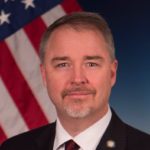
President
Momentus Space
Dr. Fred Kennedy, President, Momentus SpaceDr. Fred Kennedy was the inaugural Director of the U. S. Department of Defense (DOD) Space Development Agency (SDA), established by Acting Secretary of Defense Patrick M. Shanahan on 12 March 2019. The SDA mission is to define and monitor the DOD’s future threat-driven space architecture and to accelerate the development and fielding of new military space capabilities necessary to ensure U.S. technological and military advantage in space for national defense.
From 2017 until he became the SDA Director, Dr. Kennedy was the Director of the Tactical Technology Office (TTO) of the Defense Advanced Research Projects Agency (DARPA). Prior to joining DARPA, he served as the senior policy advisor for national security space and aviation in the National Security and International Affairs Division of the White House Office of Science and Technology Policy (OSTP). In this role, Dr. Kennedy advised the President of the United States on matters related to space and aviation policy.
Dr. Kennedy served 23 years in the United States Air Force, where he retired as a colonel. During his tenure, he served as a Senior Materiel Leader in both the Air Force’s Space and Missile Systems Center’s Remote Sensing Directorate and the Air Force Lifecycle Management Center’s Battle Management Directorate. Prior to that, he was the lead for Space Requirements with the Joint Staff/J-8 in the Capabilities and Acquisition Division at the Pentagon and a chief for Spacecraft Payload Development and Test and Satellite Systems and Acquisition at the National Reconnaissance Office. From 2005 to 2008, while in the Air Force, Dr. Kennedy was a program manager in TTO, where he created and managed efforts around spacecraft and satellite servicing, advanced space power and propulsion systems, and innovative space technologies.
Dr. Kennedy holds a Ph.D. in electronics and physical sciences from the University of Surrey; a Master of Arts in organizational management from George Washington University; a Master of Arts in strategic studies from the U.S. Army War College; and a Master of Science and Bachelor of Science, both in aeronautics and astronautics, from the Massachusetts Institute of Technology.

Senior Director
Microsoft Azure Space
Stephen Kitay, Senior Director, Microsoft Azure SpaceStephen Kitay co-leads Microsoft’s efforts to connect Azure with the space sector. The rapid advances in commercial, government and international space capabilities provides a unique opportunity to both enable the space industry through the power of Azure and leverage these space services for Azure customers. Stephen and the Azure Space team are developing capabilities and services to extend connectivity across the world, simulate digital space environments, discover new insights, and drive innovation both on the ground and in orbit.
Prior to Microsoft, Stephen served in the United States Government, most recently as the Deputy Assistant Secretary of Defense for Space Policy where he had a key leadership role in the establishment of the U.S. Space Force. He has also held a range of positions in the Air Force, Intelligence Community and Capitol Hill. Stephen has a Bachelor of Science in Electrical Engineering from Syracuse University and a Master of Business Administration from the University of West Florida.

Systems Director
The Aerospace Corporation
Dr. Josef Koller, Systems Director, The Aerospace CorporationDr. Josef Koller is a Systems Director for the Center for Space Policy and Strategy, serving as a senior analyst and team leader on topics that cut across policy, technology, and economics. Prior to joining Aerospace, Dr. Koller served as a Senior Advisor to the Office of the Secretary of Defense for Space Policy where he directly supported key national and international strategy efforts for space-related U.S. Government and DoD policy matters including commercial remote sensing, space traffic management, and related congressional affairs. Prior to that assignment, Dr. Koller managed and co-lead over 40 scientists in the “Space Science and Applications Group” at Los Alamos National Laboratory. Dr. Koller also established and led the Los Alamos Space Weather Summer School to promote graduate student research and outreach at the Laboratory.
Dr. Koller has over 17 years of experience with global security and space science programs. He has authored over 50 peer-reviewed scientific publications with 700 citations. Dr. Koller has a Ph.D. in Astrophysics from Rice University.
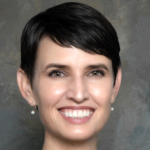
Senior Corporate Counsel
BAE Systems
Janna Lewis, Senior Corporate Counsel, BAE SystemsJanna is a senior attorney and technology strategist with more than 17 years of experience counseling clients in the aerospace, national defense and intelligence, and commercial space sectors. She has unique, cross-sector expertise in guiding programs and technology development for U.S. government and commercial initiatives, including experience with satellite, launch, unmanned vehicles, C4ISR architectures, cloud computing, and cybersecurity.
Prior to joining BAE Systems, Janna worked for Northrop Grumman as Corporate Counsel-IP, supporting their Mission Systems Sector, where she facilitated innovation and strategic partnerships to advance defense and intelligence capabilities. Prior to that, Janna worked for Facebook, where she supported Facebook’s mission to enable global internet connectivity. She helped to frame industry partnerships to catalyze delivery of global space-based and high-altitude connectivity solutions. Before Facebook, Janna was in private legal practice, where she served as senior legal counsel to U.S. and international clients in the aerospace and defense, healthcare, software, and telecommunications industries.
Janna is a member of the Defense Innovation Board, Space Advisory Committee and a volunteer with the Space Foundation. She frequently writes and speaks about the evolving legal and cultural landscapes in the defense, intelligence, and space industries, and has been recognized for her proactive, results-oriented approach to client counseling. Janna is committed to diversity in the space industry, and is a strong advocate for new space professionals.
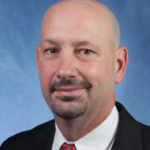
Director, Business Development Army/SATCOM Solutions
L3Harris
Raymond Lindenmayer, Director, Business Development Army/SATCOM Solutions, L3HarrisRaymond Lindenmayer currently works for L3Harris as a business development director for the Broadband Communication business areas. His customers include US Army, US Air Force, USSOCOM, and working with SATCOM partners like Space-X.
Prior to his current assignment, Ray was the Director of Business Development running the Communication Systems’ (CS) Strategic Accounts Group. The Strategic Accounts Group creates, manages, and executes goal-based campaigns to grow the sales revenue pipeline and assist in winning individual pursuits related to the campaigns. In FY18/19 the campaigns generated $256M in orders.
Ray managed the CS Top 50 customers and executive engagements with those customers as well as relationship management with key strategic partners needed to meet the revenue goals of the business development campaigns.
Prior to his business development assignment, he was the Growth Engineering Manager responsible for the execution of the division wide innovation process (I2) to identify new growth revenue opportunities into the corporate strategic growth plan (SGP). His group also identified, bid, and submitted research, development, test, and evaluation (RDT&E) proposals that are aligned with Harris’ core technology roadmap, the Defense Advanced Research Projects Agency (DARPA), and other government labs programs.
As part of his role as the Growth Engineering manager, Ray was the engineering manager for the RF-3590 Ruggedized Android Tablet and the RF-325N nanoSAVR ISR receiver.
Ray was the Falcon III MP Radio Software Manager responsible for full life cycle development of the Harris Falcon III Manpack AN/PRC-117G secure tactical radio product and the international equivalent 7800M radio. His team successfully launched the products in 2008. Harris just sold its 50,000 117G yielding over $1.5B in new product revenue.
Prior to joining Harris, Ray was a Chief Engineer at Xerox. Some of the highlights of his 16 year career include leading a large engineering organization responsible for full product life cycle development for the new family of high volume digital systems. The products yielded over $3B in revenue from 1999-2005.
Ray was born November 11, 1961, in Baldwinsville, New York. He entered the Air Force as a graduate of AF ROTC from Syracuse University in 1984. He has served in various communications and logistics positions during his 28 year military career. During his final 5 year tour at the Pentagon, he was responsible for programs, budgets, and transformation initiatives for the $4.5B Air Force Depot Purchased Equipment Maintenance (DPEM) program and the Contractor Logistics Support (CLS) program. He was also the division’s most experienced AFSO21 black belt, successfully executing seven events from 2007 – 2012.
Other Air Force duties included Chief of Automated Logistic Technology for USCENTCOM at MacDill Air Force Base. Lt. Colonel Lindenmayer was mobilized for 1 year in support of Operation Enduring Freedom. He was critical in the establishment of the forward headquarters for USCENTCOM in Qatar in November 2002.
EDUCATION:
L3Harris Corporation is a leading technology innovator, solving our customers’ toughest mission-critical challenges by providing solutions that connect, inform and protect. L3Harris supports customers in more than 125 countries, has approximately $16 billion in annual revenue and 50,000 employees worldwide.
Harris Corporation is a leading technology innovator, solving our customers’ toughest mission-critical challenges by providing solutions that connect, inform and protect. Harris supports customers in more than 125 countries, has approximately $8 billion in annual revenue and 22,000 employees worldwide. The company is organized into four business segments: Communication Systems, Space and Intelligence Systems, Electronic Systems, and Critical Networks.
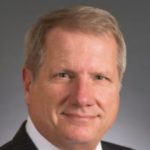
Vice President and General Manager of the Defense and Intelligence Systems Division
Hughes Network Systems
Rick Lober, Vice President and General Manager of the Defense and Intelligence Systems Division, Hughes Network SystemsRick Lober is the Vice President and General Manager of the Defense and Intelligence Systems Division (DISD) at Hughes Network Systems, LLC. In this role, he is responsible for applying the company’s broad range of SATCOM technologies and services to the worldwide defense marketplace and intelligence community. Applications cover satellite communications on the move for both ground-based an airborne platforms along with numerous classified development programs. He has over 30 years experience with both COTS-based and full MIL communications and intelligence products, systems and major programs starting as a design engineer and progressing to a P&L executive.
Mr. Lober previously worked at Cubic Corporation as Sr. VP/GM of the Communications Business Unit. In this role, he led the company’s development of the Tactical Common Data Link (TCDL) for application to both manned and unmanned military ISR platforms.
Mr. Lober worked at Watkins-Johnson Company before joining Cubic. In this role, he started as a design engineer for the company’s large catalog of signal intelligence equipment and progressed to a Department P&L lead for SIGINT equipment and systems. Mr. Lober led the program to develop the world’s first high volume digital HF receiver and also led efforts to move the company into commercial telecommunications markets.
Mr. Lober received his BSEE and MSEE degrees from the University of Illinois, Urbana, and is a member of the IEEE, AFCEA, AUSA, AUVSI and the Society of Satellite Professionals. He has published numerous papers and presentations on digital receiver design, high-speed data links, and satellite communications. Mr. Lober holds a patent in wireless communications and he and his family live in Annapolis, MD.
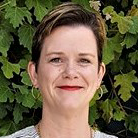
VP of Defense Programs
Stellar Solutions
Jennifer Luce, VP of Defense Programs, Stellar SolutionsJennifer Luce is Vice President of Defense Programs at Stellar Solutions, Inc., where she is responsible for oversight of the company’s technology, management, and solutions for Department of Defense customers related to space and missile systems for national protection and security. In this and her previous role as Director, Space Systems, her projects have spanned launch acquisition and integration, global positioning technical and programs, and future systems technology development. She served for over 26 years at the Department of Defense, including as project manager for a variety of U.S. Air Force, DoD, and NRO projects, directing the first consolidated mission integration team for USAF’s launch program . She holds a BS from Baylor University, where she was a member of the Arnold Air Society and AFROTC. She attained a Master’s from the University of Central Florida. She is a Certified Program Management Professional with the Project Management Institute.
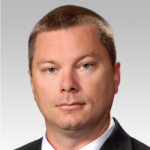
Senior Director of Strategy & Business Development
L3Harris Technologies
Tim Lynch, Senior Director of Strategy & Business Development, L3Harris TechnologiesTim Lynch is executive director of the Multi-Domain Architecture Group within the Space and Airborne Systems segment of L3Harris Technologies. Space and Airborne Systems covers an extensive portfolio of solutions
in intelligence, surveillance, small satellites, electronic warfare, avionics (including carriage and release systems), wireless solutions and C4I systems. Prior to his current position, Lynch was a chief mission architect of L3Harris. In this role, he was responsible for working with customers and program teams to develop new solutions and mission architectures to support all major areas within the organization, including smallsats, radio frequency and electro-optical payloads, and end-to-end mission solutions.
Previously, Lynch was the senior director of advanced programs with the Intelligence, Surveillance and Reconnaissance business unit at Harris Corporation (prior to the company’s merger with L3 Technologies in 2019).
Lynch joined Harris in 2000, earlier assignments included general manager of the company’s Mission Solutions. He also led two enterprises – Satellite Solutions and Advanced Technologies. These enterprises provided commercially hosted payloads, smallsat end-to-end solutions, and state-of-the-art processing systems for the Department of Defense, Intelligence Community and commercial market.
Lynch began his career as an electrical engineer and has held positions of increasing responsibility in the areas of engineering, business development, program management and mission architecture.
Lynch holds bachelor’s and master’s degrees in electrical engineering from Florida State University. He is a graduate of the Wharton executive leadership program.
He is a member of the Phi Kappa Psi Fraternity Florida Alpha Chapter, the Institute of Electrical and Electronics Engineers, the Armed Forces Communications and Electronics Association, and several other intelligence and defense organizations.
L3Harris Technologies is an agile global aerospace and defense technology innovator, delivering end-to-end solutions that meet customers’ mission-critical needs. The company provides advanced defense and commercial technologies across air, land, sea, space and cyber domains. L3Harris has approximately $18 billion in annual revenue and 48,000 employees, with customers in more than 100 countries.

CEO & Co-Founder
Atlas Space Operations
Sean McDaniel, CEO & Co-Founder, Atlas Space Operations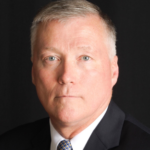
Founder and President
McLaughlin Global Associates
Lt. Gen. Kevin McLaughlin, Founder and President, McLaughlin Global AssociatesKevin McLaughlin has over 37 years of experience in the space and cyberspace business with a focus on creating and leading large-scale, innovative, global organizations, and with unique strengths in managing strategic corporate cyber risk, complex operations, strategic planning, policy development, organizational transformation, and human capital development.
As the founder and President of McLaughlin Global Associates LLC, Gen McLaughlin serves as a corporate director and advises senior executives and corporate boards on strategy formulation and implementation, with an emphasis in the areas of space and cyberspace. He specializes in several strategic issues facing the U.S. government and U.S. industry.
In particular, Kevin is a thought leader and advises senior leaders on the identification and mitigation of cyber-related strategic business risks as they exist across complex enterprises, to include the micro- electronics global supply chain. He is also deeply involved in helping senior leaders in and out of government manage the sea state changes occurring in the fabric of our space and cyberspace ecosystem. Theseincludenewtypesofpartnershipsinhowthegovernmentandprivatesectorpartner to defend our country and increase resilience against space and cyber threats, to include how the government leverages the unique strengths that come from traditional government procured capabilities, capabilities from our allies, and vertically integrated services from commercial companies. Last, Kevin is a nationally acknowledged leader in how we develop the needed human capital processes and underlying cultures required for the government and industry as they transform in the space and cyber arenas.
Kevin is active in the non-profit arena and is the Chairman of the Board of Governors for the 57,000- member Civil Air Patrol and also serves on the board for Feed the Need, a non-profit based in Bastrop, Texas. Gen McLaughlin is the Director of the Program for Cyber Policy, Strategy, and Security and an Adjunct Professor of Practice at the George Bush School of Government and Public Service at Texas A&M University.
Gen McLaughlin’s last active duty assignment was as the Deputy Commander of United States Cyber Command at Ft Meade, Maryland from 2014 – 2017. In this capacity, he directed 12,000 personnel and a $525M budget to defend the nation’s largest information network, provide offensive cyberspace options to commanders, and protect critical U.S. infrastructure from cyber-attacks. Before joining U.S. Cyber Command, Gen McLaughlin led 24th Air Force and Air Forces Cyber, the U.S. Air Force’s organization of 4,500-personnel that organized, trained, and equipped Air Force cyber forces, and executed global cyberspace operations in support of U.S. Cyber Command.
Prior to his assignment at 24th Air Force, Gen McLaughlin spent thirty years as a leader of large, complex, and highly technical organizations associated with some of the world’s most critical space organizations including the squadron that operates the Global Positioning System and the Air Force operations group that operates over 170 satellites for national leadership, U.S. and allied military, and civil and federal agencies. Kevin served as the only active-duty staff member on the Commission to Assess National Security Space Management and Organization (AKA The Rumsfeld Space Commission) in 2000-2001.

CEO
KSAT, Inc.
Katherine Monson, CEO, KSAT, Inc.Katherine Monson is the CEO of KSAT USA (Kongsberg Satellite Services). KSAT is a world-leading provider of ground station services for satellites, rocket launchers, and experimental spacecraft. With over 50 years of experience, KSAT’s network today spans over 180 antennas at over 20 ground station locations across the globe (including Pole to Pole coverage from Antarctica to the Arctic) and is constantly expanding. We are proud to be the behind-the-scenes bridge back to earth, supporting the vast majority of space companies, agencies, and start-ups.

Program Manager of Infrastructure Directorate
Defense Information Systems Agency (DISA)
Dr. Javier Montero (Cid ), Program Manager of Infrastructure Directorate, Defense Information Systems Agency (DISA)Javier is a satellite communications program manager for the Defense Information Systems Agency (DISA) Infrastructure Directorate in Ft Meade, Maryland, where he supports satellite systems’ worldwide implementation. He
is a US military veteran with over 30 years of experience in satellitepayload and gateway planning, implementation, and operations. His focus is in the delivery of SATCOM and terrestrial services, as well as, telecommunications management. Javier specializes in integrating software, analytical capabilities, and operational business intelligence in support of
terrestrial communications and satellite processes. He received a Ph.D. in Information Technology from Capella University in 2019, which focused on the successful use of Business Intelligence systems. Javier is a certified program management professional (PMP).
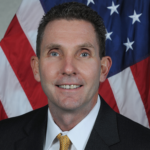
Chief, COMSATCOM Solutions Program
HQ - US Space Force
Mike Nichols, Chief, COMSATCOM Solutions Program, HQ - US Space ForceMr. Nichols has managed DoD meshed network solutions, including terrestrial transport, data applications, and commercial satellite services as a Department of Defense government civilian for more than 32 years.
During the span of his career, Mr. Nichols has managed communication services for the United States Navy Europe/Central Region in Naples, Italy, was a project manager for European terrestrial transport initiatives based out of Stuttgart, Germany, and served as a senior advisor to the Afghan Ministry of Communications and Technology in Kabul, Afghanistan as part of the U.S. Department of Defense Telecommunications Advisory Team.
Prior to his current position, Mr. Nichols was the Deputy Chief for the DoDs Enhanced Mobile Satellite Services (EMSS).
A U.S. Navy Veteran, Mr. Nichols is proud to serve the Department of Defense and provide critical C5ISR that enable warfighter capabilities.

Director of Government Product Development
Telesat U.S. Services
Rich Pang, Director of Government Product Development , Telesat U.S. ServicesMr. Rich Pang is the Director of Government Product Development for Telesat U.S. Services, LLC and an industry expert in the development and execution of government products and services including hosting government payloads on commercial satellites. He is a retired military officer with 21 years of experience in space operations dealing with missile warning and defense, space control, satellite command and control, launch and early orbit testing, and collision avoidance and electromagnetic interference analyses. He also has a strong background in personnel training and evaluation, personnel and resource management, operational testing and evaluation, and space systems’ acquisition.
Mr. Pang’s prior experience includes serving as the Vice President of Government Segment Market Management at SES Networks where he was responsible for assessing global government and institutional markets, identifying customers’ requirements, and leading the identification and/or development of SES products and solutions to meet customers’ needs.
Prior to joining SES Networks, Mr. Pang worked at SES Government Solutions (SES GS) where he served as the Senior Director for Hosted Payloads. He was responsible for seeking, pursuing, and securing opportunities to support U.S. Government missions around the world through the use of hosted payloads. While there, he managed the Commercially Hosted InfraRed Payload (CHIRP) program for the United States Air Force and captured two other hosted payload contracts: (1) the Wide Area Augmentation System (WAAS) funded by the Federal Aviation Administration; and (2) the Global Observations of the Limb and Disk (GOLD) funded by the National Aeronautics and Space Administration (NASA).
In May 2010, Mr. Pang retired from the United States Air Force as a Lieutenant Colonel after twenty-one years of service. In his last assignment, he served as the Director of Operations at the Program Executive Office for Environmental Satellites in Silver Spring, Maryland, where his duties encompassed leading a diverse team of over a hundred personnel from the Department of Defense, the Department of Commerce, and government contractors responsible for the operations and maintenance of the Defense Meteorological Satellite Program and the WindSat/Coriolis mission. In addition, his division was responsible for establishing operational policy and procedures for the development, transition, and subsequent operations and maintenance of follow-on meteorological satellite programs.
Mr. Pang was born in Portland, Oregon, and earned his commission as a Distinguished Graduate through the Air Force Reserve Officer Training Corps program in June 1989. He earned a Bachelor of Science Degree in Aeronautical and Astronautical Engineering from the University of Washington in Seattle, Washington, and a Master of Business Administration Degree from San Jose State University in San Jose, California.
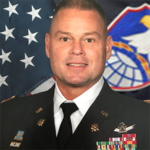
Commander
U.S. Army Satellite Operations Brigade
Col. Stephen Parrish, Commander, U.S. Army Satellite Operations BrigadeCOL Stephen Parrish was born near Satellite Beach, Florida, and at the age of 12 moved to Colorado Springs, Colorado. He graduated from Thomas B. Doherty High School in 1991 and attended college at Adams State College in Alamosa, Colorado, where he earned a Bachelor of Arts in psychology with a minor in sociology in 1994. He joined the U.S. Army in 1997 and attended Basic Training at Fort Jackson, South Carolina, and Officer Candidate School at Fort Benning, Georgia. Upon graduating, he commissioned as a military intelligence officer. In 2001, he earned a Master of Business Administration from the University of Phoenix, and in 2020, earned a Masters of Strategic Military Studies from the Air War College at Maxwell Air Force Base, Montgomery, Alabama. COL Parrish has served in a variety of command and staff positions throughout his 23-year career.
COL Parrish’s assignments include:
532nd Military Intelligence Battalion, Yongsan, Republic of Korea.
COL Parrish deployed in support of Operation Iraqi Freedom as the theater linguist manager and chief, Counter Vehicle Borne Improvised Explosive Device Task Force, Multi-National Forces, Baghdad, Iraq.
His awards and decorations include the Bronze Star Medal, the Defense Meritorious Service Medal, the Meritorious Service Medal (five oak leaf clusters), the Army Commendation Medal (two oak leaf clusters), the Army Achievement Medal (four oak leaf clusters), the Joint Military Unit Award (two oak leaf clusters), the National Defense Service Ribbon, the Iraq Campaign Medal, the Global War on Terrorism Service Medal, the Korean Defense Service Medal, the Military Outstanding Volunteer Service Medal, the Army Service Ribbon, the Army Overseas Service Ribbon (oak leaf clusters), and the Army Master Space Badge.
COL Parrish has attended Military Intelligence Officer Basic and Advanced Courses, Imagery Intelligence Officer Course, Space Operations Qualification Course, Space 200 and 300, Intermediate Level Education, Joint Professional Military Education Level II, the Special Technical Operations Planner’s Course, and the Senior Service College.
Colonel Parrish is married, and they have four children.

Vice President of Major Development
United Launch Alliance - ULA
Mark Peller, Vice President of Major Development, United Launch Alliance - ULAMark Peller is the vice president of major development at United Launch Alliance (ULA), and in this position is responsible for development of Vulcan. Vulcan is ULA’s future launch system that builds upon the ULA’s extensive Atlas and Delta heritage to provide a competitive product offering to serve a broad spectrum of markets. As the program manager, Peller has overall responsibility for developing the launch vehicle and the supporting capabilities required across the supply chain as well as ULA’s production and launch operations to meet the program’s objectives.
Peller began his career with Rockwell International in 1990 as a propulsion engineer supporting the Space Shuttle program. He joined The Boeing Company in 1996 when it acquired the aerospace and defense businesses of Rockwell. Peller moved to the Delta program in 1997 and held various technical and program management positions throughout the development and initial fielding of the Delta IV launch system.
Peller continued his work on the Delta program at ULA after the company was formed in 2006. In 2009, he was appointed theproduct line chief engineer for Delta, where he had overall technical responsibility for the Delta II and Delta IV launch systems. During this period he oversaw 24 successful Delta launches, including the first launch of the Delta IV Heavy configuration from the West Coast. In 2013 Peller transitioned into the role of the director of the ULA Hardware Value Stream where he was responsible for managing the Evolved Expendable Launch Vehicle (EELV) contracts with the U.S. Air Force, and leading the product teams supporting launch vehicle development, procurement, and production.
Peller holds a Bachelor of Science degree in applied mechanics from the University of California, San Diego, a Master of Science degree in aerospace engineering from the University of Southern California and a Master of Business Administration degree from the University of California, Irvine. He is a licensed mechanical engineer in the state of California.

Founder & CEO
SpyGlass Group
Ken Peterman, Founder & CEO, SpyGlass GroupKen Peterman is Founder & CEO, SpyGlass Group, an innovative thought-leading organization that has helped shape aerospace and defense strategic trajectories in the tactical communications, mobile networking, cybersecurity, and satellite sectors since 2012. As a passionate, creative and forward leaning leader in the global aerospace and defense market, Ken serves on a variety of boards and advisory groups where he has been honored with multiple awards, including:
– Industry Tech Outlook 2020: Ten Best Innovative Business Leaders
– BattleSpace Magazine 2018: Businessman of the Year
– Vanguard Magazine 2018: Game Changer Awardee
Previously, as President, Viasat Government Systems (2013-2021), Ken led a global defense business (>$1B) recognized as a market leader in assured high-capacity satellite communications, tactical networking and Link-16 datalinks, information assurance and cybersecurity, hybrid adaptive networking and blended air/ground situational awareness. Under Ken’s leadership, Viasat built a culture of passionately focusing on the warfighter’s mission and applying technical innovation to empower the warfighter in new and different ways, proactively creating technology-enabled operational capabilities in unprecedented ways some never thought possible. Ken led Viasat’s transformation as the fastest organically growing US defense company for six consecutive years. Viasat grew to become a prime capabilities provider to the US DoD and allied forces, with a commitment to connecting the world’s toughest missions and ensuring that mission operators have the trusted information they need, when and where they need it most.
Previously, as President, ITT/Exelis Communications and Electronic Warfare Systems (2007-2013), Ken led a global defense and aerospace business >$1B with over 3,000 employees in 12 states plus the United Kingdom. Portfolios included tactical and satellite communications systems, information assurance and cybersecurity solutions, global positioning systems (GPS), electronic protection and counter IED systems, and integrated command, control, communications and computer (C4) systems for U.S. and allied forces in over 35 countries. (Note that ITT/Exelis spun out of ITT in 2011 and was then acquired by L3Harris in 2015.)
A distinguished leader in aerospace and defense, Ken has enjoyed successful executive leadership tenures at Viasat, ITT/Exelis, Rockwell Collins and Raytheon. Broadly respected as a thought leader and innovator among US and international senior leaders, he currently serves on a variety of boards and advisory groups. Ken received a Bachelor of Science in Electrical Engineering (high honors) from Tri-State University (now Trine) and completed executive programs at Stanford University Graduate School of Business and Pennsylvania State University.

Chief Executive Officer
Spire Global
Peter Platzer, Chief Executive Officer, Spire GlobalPeter Platzer co-founded Spire in 2012 with a vision to provide satellite-powered data solutions
to problems on earth. The company’s audacious goal is to double global GDP growth by eliminating the negative economic impact from inaccurate weather forecasts in the era of Climate Change. Platzer is now regarded as one of the pioneers in launching small form factor satellites into space and was named by President Obama a
White House Champion of Change in 2013.
Prior to launching Spire, Peter trained at CERN and the Max Planck Institute before turning to business with the Boston Consulting Group in
Europe and Asia, and serving as a quantitative investment manager for almost a decade on Wall Street.
Peter received an M.S. in Physics from the Technical University of Vienna, an M.B.A. from Harvard, where he was a Baker scholar, and an MSc cum laude in Space Science from ISU Strasbourg. He also serves as a Career Coach at Harvard Business School. His publications and patents span Computational Physics, Nano-satellite Technologies, and climate change adaptation. He currently lives happily in Luxembourg with his wife Theresa, daughters Alex and Asta, and cats Wolferl and Nannerl.
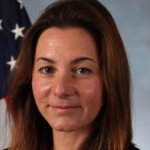
Ground Systems Lead
U.S. Space Force
Bianca Prumo, Ground Systems Lead, U.S. Space Force
Vice President, Product Management
Kratos
Greg Quiggle, Vice President, Product Management, KratosGreg Quiggle currently serves as the Vice President, Product Management at Kratos, where he is responsible for overall product strategy and ongoing lifecycle management of Kratos’ commercial product portfolio.
Prior to joining the team, Quiggle served as the Vice President of Emerging Products for VT iDirect, during which time he played an instrumental role in developing the company’s 5G/SDN strategy and ecosystem. Additionally, he has served as the Executive Vice President of Marketing for Tollgrade Communications and the Vice President of Marketing for Acterna Corporation (now Viavi). In these roles, he has spent over 25 years conceptualizing and executing successful, corporate-level product/technology strategies within the communications industry.
Quiggle has earned a BS of Electrical Engineering from Purdue University and an MBA from the University of Maryland

President
Quilty Analytics
Chris Quilty, President, Quilty AnalyticsChris is the president of Quilty Analytics, an independent research and consulting firm that provides strategy, competitive benchmarking, financial analysis, and investment diligence on all aspects of the Satellite & Space industry.
Prior to establishing Quilty Analytics in 2016, Chris served as a sell-side research analyst with Raymond James for 20 years, publishing hundreds of company-specific, macro, sector, and thematic research reports on the industrial, defense, space, wireless, and communications industries. Chris is widely-acknowledged as the leading Wall Street analyst on the Satellite & Space sector and has participated in 30 capital markets transactions over the past five years valued at over $2.5 billion
Chris received a BS degree in Systems Engineering from the United States Naval Academy in 1989 and an MBA from the University of Chicago in 1994.

Chief Operating Officer
Hawkeye 360,
Rob Rainhart, Chief Operating Officer , Hawkeye 360,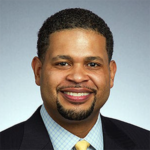
Senior VP, Space Business Unit
SAIC
David Ray, Senior VP, Space Business Unit, SAICDavid Ray is senior vice president and lead for the Space Business Unit within the National Security & Space Sector for SAIC. In this role, he is responsible for leading the $1.3 billion Space Business Unit with customers spanning the intelligence, defense, and federal/civil agencies.
Ray joined SAIC in 2021 with a wealth of experience in both managing and growing large technology businesses that serve government customers around the world.
Prior to his current position, Ray served as president of the Government and Defense Business Unit at FLIR Systems, Inc. where was responsible for leading all aspects of the $900 million business unit, including strategy, research and development, operations, business development, and marketing.
Ray has held several leadership roles in general management and business development at Raytheon Company from 2002 to 2017. His most recent role with the company was as vice president, Global Business Development and Strategy for the company’s $6 billion Intelligence, Information, and Services Segment, serving intelligence, Department of Defense, federal/civilian agencies, and international customer markets.
He also previously served in many leadership positions of increasing authority for Raytheon Missile Systems (RMS) and Space & Airborne Systems (SAS) businesses during his 16- year tenure with Raytheon. Prior to this, he began his career as a senior management consultant at Booz Allen Hamilton.
Ray received a Bachelor of Science degree in business management from the U.S. Air Force Academy and served five years in the Air Force at Andrews Air Force Base and the Pentagon where he led teams responsible for communications-related projects designed to support senior members of the government and military. He also earned a Master of Science degree in systems management and strategy from Central Michigan University.

President
Ursa Space Systems
Nicole Robinson, President, Ursa Space SystemsNicole Robinson is the President of Ursa Space Systems, a leading satellite intelligence and data analytics provider leveraging a global virtual constellation of +200 SAR, earth observation and RF satellites. In her role, she is responsible for taking the company from a start up to a scale up in accelerating the companies growth globally while optimizing operations. Ms. Robinson also serves as the President of Society of Satellite Professionals International (SSPI), the largest professional organization in the space and satellite community.
Prior to joining Ursa Space, Ms. Robinson was the Senior Vice President of Global Government for SES, the largest commercial satellite operator in the world. In her role at SES, she was responsible for the company’s global business portfolio of government customers in the areas of defense, security, humanitarian, federal, civilian and institutional organizations. Additionally, she served in a variety of Board level positions for SES including Chairman of the Board of Redu Space Services, Director of the LuxGovSat Board of Directors and former Managing Director and CEO of SES Techcom Services, Inc. Prior to joining SES, she served as the leader of the Strategic Communications function for the U.S. Joint Forces Command’s Standing Joint Force Headquarters (SJFHQ) with General Dynamics as well as the U.S. Army Center of Military History.
Ms. Robinson is known in the satellite industry for serving in a variety of leadership positions including two terms as Chair of the Hosted Payload Alliance as well as Vice Chair, Board level positions for the Washington Space Business Roundtable, SSPI and others. She was the recipient of the 2012 Future Leaders Award by the Society of Satellite Professionals International and is a member of “The FEW,” an invitation-only assembly of senior executive women.
Ms. Robinson is certified in Federal Financial Management by the Federal Training Center, completed her bachelor’s degree in Communications at Radford University, earned an MBA from Liberty University, and is a graduate of the Senior Executives in National and International Security Program at Harvard University, Kennedy School of Government.

Founding Editor
Space Force Journal
Dr. Mir Sadat, Founding Editor, Space Force JournalDr. Mir Sadat has more than 25 years of experience in private industry and government. Mir is a former policy director at the U.S. National Security Council, where he led interagency coordination on defense and space policy issues. In this role, Mir supported the establishment of both the US Space Force and US Space Command, and reviewed national security decisions involving civil space (NASA) and the US commercial space sector. Mir is also a naval officer with intelligence and space qualifications and in his preceding two naval assignments; he served as a space policy strategist with Chief of Naval Operations and as a space operations officer with U.S. Tenth Fleet. Mir has a Ph.D. from Claremont Graduate University and has taught at various universities in California and Washington, DC.
He is founding editor-in-chief of Space Force Journal and co-author of “U.S. Space Policies for the New Space Age: Competing on the Final Economic Frontier.” Follow him on Twitter @Dr_Sadat_USN and LinkedIn
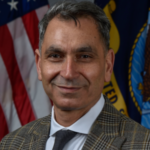
Distinguished Visiting Professor
US Naval Academy
Dr. Gurpartap GP Sandhoo, Distinguished Visiting Professor, US Naval AcademyDr. Sandhoo currently occupies the Distinguished Visiting Professor Robert Heinlein Endowed Chair in Astronautics at the US Naval Academy. Prior to that as a member of the Senior Executive Service (SES) he headed the Spacecraft Engineering Division, and was the acting Director of the Naval Center of Space Technology (NCST) at the U.S. Naval Research Laboratory (NRL), a full spectrum lab that conceives, designs, builds, tests, operates, and transitions advanced space systems and technologies. He provided executive direction and technical leadership in conducting research of space systems with advanced technologies.
He was also a flight controller at NASA’s Johnson Space Center, and was research & development engineer at Johns Hopkins University’s Applied Physics Laboratory, and in industry. Since 1986, he has served in uniform in the U.S. Marine Corps and the U.S. Navy. Currently, Sandhoo is a Captain in the U.S. Navy Reserve as an Engineering Duty Officer, is VS8 and VR2 level Space Cadre, and is the Commanding Officer of Navy Cyber Warfare Development Group reserve unit.
He holds a Bachelor’s degree in mechanical engineering from the University of Maryland, a Master’s degree in electrical engineering from Johns Hopkins University, Master’s from the U.S. Naval War College, a Master’s and a Doctorate in Aeronautics and Astronautics from George Washington University, and is a MIT Seminar XXI fellow.

Vice President and General Manager, Military Space
Lockheed Martin
Kay Sears, Vice President and General Manager, Military Space, Lockheed MartinKay Sears is the Vice President and General Manager of the Military Space line of business within Lockheed Martin Space. In this role, Kay is responsible for critical national security space programs and mission areas including global navigation satellite systems, space-based missile warning, protected communications, space protection and operations, logistics and sustainment for various customers including the Department of Defense.
Previously, Kay was the Vice President of Strategy and Business Development where she was credited with growing the Space business with a comprehensive strategy to develop new markets and expand core mission areas. She also led strategic planning, advanced program development and new business efforts for each of Space’s lines of business.
Prior to joining Lockheed Martin, Kay served as president of Intelsat General. As president, Kay implemented the company’s strategic and operational plans and was responsible for their mission to provide a range of sustainable, cost-effective and secure communication solutions to government and commercial customers. Before that, she helped launch the government services business units at both G2 Satellite Solutions and Verestar.
With three decades of experience, Kay is a respected leader in the aerospace and defense industry. Kay is passionate about building effective partnerships with her customers, which was sparked by her experience providing space services to warfighters while she was on the operations side of the business. She believes it will take true partnership between industry and government to defeat our adversaries. Kay prides herself on finding common ground and priorities to partner in trusting and long-lasting relationships, and she has done so time and time again throughout her career.
Notably, Kay was appointed to the President’s National Security Telecommunications Advisory Committee in 2009 to provide information, technical expertise, advice and guidance regarding issues that may affect national security telecommunications capabilities.
In 2014, Kay was honored with the National Defense Industrial Association’s Peter B. Teets Award, which recognizes leaders of notable influence who have made significant contributions to strengthening our national security through space capabilities or technology.
Kay has a bachelor’s degree in Business and Economics from the University of Richmond and an MBA in Information Systems from George Washington University.
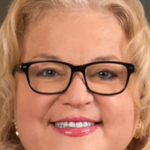
Partner
Hogan Lovells
Randy Segal, Partner, Hogan LovellsWith 20 years of in-house general counsel experience, Randy Segal brings an individual perspective to every matter she handles, both as your outside counsel and as someone who has walked in your shoes. With a focus on satellite, wireless, drone, and technology transactions, Randy provides commercially practical solutions in industries where technological change is ever-present. Randy’s practice often involves multi-level chess games, where every move needs to be considered from a multitude of angles to be successful.
As a result, Randy’s practice is reflected in three segments. First, as co-leader of the Space and Satellite practice, Randy has handled many types of transactions, from day-to-day matters to the most complex international transactions for industry operators, investors, and technology providers. She has been involved in taking companies public, advising on acquisitions, divestitures, and complex cross-border joint ventures, as well as large satellite system development, deployments and funding.
Second, as an advisor to technology investors and their portfolio companies, Randy has advised on transactions focused on big data analytics, IT, wireless systems, spectrum licenses, environmental analytics, wireless proximity analysis, drone technology, terrestrial positioning, and other innovative technologies.
Third, Randy provides “strand of pearls” advice to global clients, working seamlessly with our international offices to develop familiar, comfortable and “right-sized” solutions. Randy’s extensive cross-border experience has resulted in an extensive tool-kit of resolutions for the most complex of legal regimes. Randy’s transactional and advisory experience is both deep and broad, working throughout North and South America, Europe, Asia and the Middle East and on the most complex of international programs and legal issues.

CEO
HawkEye 360
John Serafini, CEO, HawkEye 360John is the Chief Executive Officer of HawkEye 360, a developer of space-based radio frequency (RF) mapping and analytics capabilities. He previously served as Senior Vice President of Allied Minds where he led the formation of and the investment into HawkEye 360, along with other Allied Minds companies such as BridgeSat, Federated Wireless, Optio Labs, Percipient Networks, and Whitewood Encryption Systems. John’s investment activities and management expertise center upon the intersection of profit-maximizing private capital and the unique requirements and R&D capabilities of the U.S. government.
A former Airborne Ranger-qualified U.S. Army infantry officer with duty stations at the 82d Airborne Division & UNCSB-JSA of the Korean DMZ, John holds a BS from the United States Military Academy at West Point, and an MBA and MPA from Harvard University.

Deputy Chief, Enhanced Mobile Satellite Services
U.S. Space Force
Jiral Shah, Deputy Chief, Enhanced Mobile Satellite Services , U.S. Space ForceJiral Shah is the Deputy Chief of the Enhanced Mobile Satellite Services (EMSS) Program Office within the Commercial Satellite Communications (COMSATCOM) Office, assigned to Headquarters United States Space Force, Washington, D.C. He is responsible for delivering COMSATCOM capabilities to support the joint warfighter, federal agencies and international partners. He is known for leading technical and programmatic teams focusing on service delivery, innovative technologies, and developing complex business models.
EMSS is an $800 million global satellite program that provides the Department of Defense, federal and coalition partners with unlimited access to the commercial Iridium constellation, a mesh-network of 66 on-orbit cross-linked satellites, through a dedicated, EMSS controlled gateway.
Prior to this role, Mr. Shah was a lead test engineer at US Army’s Combat Capabilities Development Command C5ISR Center, formerly the Communications-Electronics RD&E Center (CERDEC) at Aberdeen Proving Ground, Maryland. In this role, Mr. Shah lead teams to evaluate and deploy Army’s future portfolio of software defined radios. Additionally, Mr. Shah evaluated SATCOM terminals and modems for Wideband Global SATCOM (WGS) certification at the Joint SATCOM Engineering Center (JSEC).
Mr. Shah is a proud veteran of the US Army, where he served as a radio communications engineer.
Mr. Shah has a Masters Degree in Space Systems Engineering from the Johns Hopkins University in Baltimore, Maryland; and he earned his Bachelor’s Degree in Electrical and Biomedical Engineering from The George Washington University in Washington, D.C..
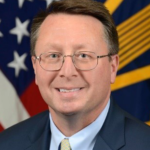
Vice President
Maxar Technologies
Chris Shank, Vice President, Maxar TechnologiesChris Shank is a Vice President at Maxar Technologies. Chris previously held various leadership roles in the military, U.S. government and commercial industry for over 25 years. Before joining Maxar, Chris was the Director of the Strategic Capabilities Office at the U.S. Department of Defense. In this role, he led the development of new and innovative ways to shape and counter emerging threats across all domains, bringing unexpected and game-changing capabilities to the Joint Force.Chris has also held leadership roles at Van Scoyoc Associates, the House Science, Space and Technology Committee, Honeywell Aerospace, Johns Hopkins University Applied Physics Laboratory and NASA. He served as an Officer in the U.S. Air Force for 11 years with assignments at Space Command, National Reconnaissance Office, and Pentagon. Chris holds a Master of Science in Aerospace Engineering from the University of Colorado and a Bachelor of Science in Mathematics from the University of Notre Dame.

Senior Systems Engineer
Kratos Space RF Sensing Systems
Kameron Simon, Senior Systems Engineer, Kratos Space RF Sensing SystemsMr. Kameron Simon is a senior systems engineer for Kratos Space RF Sensing Systems business area. His area focuses on the application of advanced algorithms to RF satellite emissions in support of Space Situational Awareness and Radio Frequency Situational Awareness. He works with a team of talented software engineers, and system engineers in the research and application of how monitored radio frequency spectrum can be used to inform users in these domains. Mr. Simon has over 10 years of experience in systems engineering and holds a BS and MS in Mechanical Engineering. Prior to joining Kratos, Mr. Simon worked as a Senior Engineer and Modeling and Simulation Lead for the Space Fence program and Technical Lead for the iSpace product at Lockheed Martin where he gained experience on the Space Surveillance Network of ground sensors and the Space Situational Awareness, Missile Warning, and Missile Defense mission areas.

Director of Maritime Product Management
Maxar Technologies
Bryan Smith, Director of Maritime Product Management, Maxar Technologies
Founder & Chairman
Mansat
Chris Stott, Founder & Chairman, MansatChris Stott serves as the Executive Chairman of ManSat. Chris cofounded ManSat in 1998 with his father, Bryan, and over the following 20 years grew the company as its President and CEO to become the largest commercial provider of satellite spectrum in the global space industry. Chris also serves as the Chair of IceSat, ManSat’s subsidiary company in Iceland, and is the founder, Chair, and CEO of Lonestar Lunar Development LLC.
In 2000 Chris left his position as Director of International Commercialization and Sales with Lockheed Martin Space Operations to become ManSat’s President. Prior to his work with Lockheed Martin, Chris was an executive with the McDonnell Douglas and the Boeing Company working in International Business Development on the Delta Launch Vehicle program.

President
SIA - Satellite Industry Association
Tom Stroup, President, SIA - Satellite Industry AssociationAs President of SIA, Tom Stroup is the trade association’s lead advocate for regulatory and policy issues of critical importance to SIA’s membership, including spectrum and licensing issues, defense and public safety matters, and export control and international trade issues. He also manages the day-to-day operations of SIA, including member communications, staff leadership and organization of SIA sponsored events.
Prior to joining SIA, Mr. Stroup was with Shared Spectrum Company (SSC), a leading developer of spectrum intelligence technologies, where he served as CEO. For more than a decade, he served as the President of the Personal Communications Industry Association (PCIA). Previous to his position at SSC, he founded and ran several companies in the technology industry, including Columbia Spectrum Management, P-Com Network Services, CSM Wireless, and SquareLoop.
Mr. Stroup holds a BS, summa cum laude, in Public Administration from the University of North Dakota. He is also a graduate of Georgetown University Law Center where he served as Editor of the Georgetown Law Journal.

CEO
Arrasar Partners
Dr. Paul Struhsaker, CEO, Arrasar PartnersExperienced innovation and engineering executive across multiple industries including wireless networking (cellular and WiFi), consumer electronics, silicon platforms, and large-scale cloud client computing. Currently CTO of Carnegie Technologies. Other roles included SVP Software Engineering at Comcast NBC Universal, VP of Engineering at Cable Vision Systems, VP Silicon Platform at Motorola PCS, CTO of Dell’s Client Solutions Group, and CTO Broadband at Texas Instruments. He was a founder and CTO of two successful startups: Wi-Fi innovation leader Aironet Wireless (acquired by Cisco) and 4G wireless innovator Raze Technologies. He started his career at the National Security Agency.
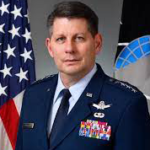
Vice Chief of Space Operations
United States Space Force
General David D. Thompson, Vice Chief of Space Operations, United States Space ForceGen. David D. Thompson is the Vice Chief of Space Operations, United States Space Force. As Vice Chief he is responsible for assisting the Chief of Space Operations in organizing, training and equipping space forces in the United States and overseas, integrating space policy and guidance, and coordinating space-related activities for the U.S. Space Force and Department of the Air Force.
The U.S. Space Force organizes, trains, equips and maintains mission-ready space forces that provide missile warning, space domain awareness, positioning, navigation and timing, communications and space electronic warfare for North American Aerospace Defense Command, U.S. Strategic Command, U.S. Space Command and other combatant commands.
Gen. Thompson was commissioned in 1985 as a graduate of the U.S. Air Force Academy. He is a career space officer with assignments in operations, acquisition, research and development and academia. Gen. Thompson has commanded operational space units at the squadron, group, and wing levels; he is also an Olmsted Scholar, graduate of the Senior Acquisition Course and Level III-Certified Program Manager. Prior to his assignment as Vice Chief of Space Operations, Gen. Thompson was the Vice Commander, U.S. Space Force.
EDUCATION
1985 Bachelor of Science, Astronautical Engineering, U.S. Air Force Academy, Colo.
1989 Master of Science, Aeronautics and Astronautics, Purdue University, West Lafayette, Ind.
1990 Squadron Officer School, Maxwell Air Force Base, Ala.
1993 Olmsted Scholar, Johannes Kepler University, Linz, Austria
1998 Air Command and Staff College, Maxwell AFB, Ala.
2000 Advanced Program Managers Course, Defense Systems Management College, Fort Belvoir, Va.
2001 Air War College, Maxwell AFB, Ala.
2005 Master of Science, National Security Industrial Policy, Industrial College of the Armed Forces, Fort Lesley J. McNair, Washington, D.C.
2005 Senior Acquisition Course, National Defense University, Fort Lesley J. McNair, Washington, D.C.
ASSIGNMENTS
1. July 1985–May 1988, Experimental Rocket Propulsion Engineer and Chief, Motor/ Component Operations Section, Air Force Rocket Propulsion Laboratory, Edwards Air Force Base, Calif.
2. June 1988–July 1989, Graduate Student, Purdue University, West Lafayette, Ind.
3. August 1989-October 1992, Instructor of Astronautics, Assistant Professor and Executive Officer, Department of Astronautics, U.S. Air Force Academy, Colo.
4. October 1992–May 1993, Student, Defense Language Institute, Presidio of Monterey, Calif.
5. June 1993–July 1995, Olmsted Scholar, Johannes Kepler University, Linz, Austria
6. August 1995–July 1997, Program Manager, Advanced MILSATCOM Program, MILSATCOM Joint Program Office, Space and Missile Systems Center, Los Angeles AFB, Calif.
7. August 1997–June 1998, Student, Air Command and Staff College, Maxwell AFB, Ala.
8. July 1998–August 2000, Spacelift Requirements Officer and Chief, Spacelift Vehicle Requirements Branch, Headquarters Air Force Space Command, Peterson AFB, Colorado Springs, Colo.
9. September 2000–April 2002, Deputy Director, Commander’s Action Group, Headquarters Air Force Space Command, Peterson AFB, Colo.
10. June 2002–July 2004, Operations Officer and Commander, 2nd Space Launch Squadron, Vandenberg AFB, Calif.
11. August 2004–June 2005, Student, Industrial College of the Armed Forces, Fort Lesley J. McNair, Washington, D.C.
12. June 2005–July 2007, Commander, 45th Operations Group, Cape Canaveral Air Force Station, Fla.
13. July 2007–May 2009, Commander, Aerospace Data Facility – Colorado, Buckley AFB, Colo.
14. June 2009–June 2010, Director of Space Forces, U.S. Air Forces Central Command, Southwest Asia
15. July 2010–May 2011, Vice Commander, U.S. Air Force Warfare Center, Nellis AFB, Nev.
16. May 2011–March 2012, Director of Air, Space and Cyberspace Operations, Air Force Space Command, Peterson AFB, Colo.
17. March 2012–January 2014, Deputy Director of Global Operations, U.S. Strategic Command, Offutt AFB, Neb.
18. January 2014–June 2015, Director of Plans and Policy, U.S. Strategic Command, Offutt AFB, Neb.
19. July 2015–July 2017, Vice Commander, Air Force Space Command, Peterson AFB, Colo.
20. July 2017–April 2018, Special Assistant to the Commander, Air Force Space Command, Peterson AFB, Colo.
21. April 2018–December 2019, Vice Commander, Air Force Space Command, Washington, D.C.
22. December 2019–September 2020, Vice Commander, U.S. Space Force, Washington, D.C.
23. October 2020–present, Vice Chief of Space Operations, U.S. Space Force, Washington, D.C.
SUMMARY OF JOINT ASSIGNMENTS
1. July 2007–May 2009, Commander, Aerospace Data Facility – Colorado, Buckley Air Force Base, Colo., as a colonel
2. March 2012–January 2014, Deputy Director of Global Operations (DJ3), U.S. Strategic Command, Offutt AFB, Neb., as a brigadier general and major general
3. January 2014–June 2015, Director of Plans and Policy (J5), U.S. Strategic Command, Offutt AFB, Neb., as a major general
BADGES
Command Space Operations Badge
Parachutist Badge
Master Acquisition Badge
Missile Maintenance Badge
MAJOR AWARDS AND DECORATIONS
Defense Superior Service Medal with oak leaf cluster
Legion of Merit
Bronze Star Medal
Defense Meritorious Service Medal
Meritorious Service Medal with two oak leaf clusters
Air Force Commendation Medal
Air Force Achievement Medal with two oak leaf clusters
OTHER ACHIEVEMENTS
2006 Outstanding Space Operations Crew, Air Force Association
2009 National Reconnaissance Office Gold Medal
2012 General Jerome F. O’Malley Distinguished Space Leadership Award, Air Force Association
2018 Peter B. Teets Government Award, National Defense Industrial Association
2019 Space Leadership Award, Federation of Galaxy Explorers
2019 Outstanding Aerospace Engineer, Purdue University
EFFECTIVE DATES OF PROMOTION
Second Lieutenant May 29, 1985
First Lieutenant May 29, 1987
Captain May 29, 1989
Major Aug. 1, 1996
Lieutenant Colonel May 1, 2000
Colonel Aug. 1, 2004
Brigadier General June 18, 2010
Major General Oct. 10, 2013
Lieutenant General April 4, 2018
General Oct. 1, 2020
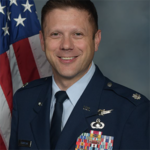
Assistant Portfolio Architect
US Air Force
Lt. Col. Gary G. Thompson, Assistant Portfolio Architect, US Air ForceLieutenant Colonel Gary Thompson advises and assists the Portfolio Architect and Corps on matters concerning business practices and technologies to advance U.S. Government, Commercial and Coalition Partner satellite communications capabilities as an integrated enterprise.
Lieutenant Colonel Thompson entered the Air Force in 1999 as a graduate of Officer Training School following 7 years of Army and Minnesota Army National Guard enlistment. He has served in a variety of acquisition, business, information assurance and staff positions at Air Force Materiel Command and Air Force Space Command. He was mobilized in support of Operations Iraqi Freedom and Enduring Freedom. While deployed to Iraq and Afghanistan, he served under United States Central Command at the 332nd Air Expeditionary Wing, Combined Forces Command-Afghanistan and the NATO International Security Assistance Force. Lieutenant Colonel Thompson transitioned from active duty to the Air Force Reserves in 2009 where he continues to support space systems and users worldwide.
EDUCATION
2000 Joint Air Operations Staff Course, Hurlburt Field, FL
2005 Squadron Officer School, Maxwell AFB, AL
2010 Space Fundamentals, Peterson AFB, CO
2017 Intermediate Developmental Education, Air University, Maxwell AFB, AL
2017 Masters of Military Operational Art and Science, Air University, Maxwell AFB, AL
PROFESSIONAL CERTIFICATIONS
2008 APDP Level I, SPRDE, DAU
2008 APDP Level III, Program Management, DAU
2010 Certified Information Systems Security Professional, (ISC)2 2013 Certified HIPAA Security Expert
ASSIGNMENTS
1. July 1999-Sep 1999, Officer Trainee, Officer Training School, Maxwell AFB, Alabama
10. Jul 2019-Present, Chief of Enterprise Satellite Communications Capability Integration, Portfolio Architect, Los Angeles AFB, California
MAJOR AWARDS AND DECORATIONS
Meritorious Service Medal
Joint Service Commendation Medal
Air Force Commendation Medal with 3 oak leaf clusters Air Force Achievement Medal
Army Achievement Medal
OTHER ACHIEVEMENTS
1999 General Edwin W. Rawlings Award
2000 Top Contributor, Aerospace Basic Course 2005 Top Third Flight, Squadron Officer School 2017 SMC/MC Reservist of the Year
EFFECTIVE DATES OF PROMOTION
Second Lieutenant First Lieutenant Captain
Major
Lieutenant Colonel (Current as of 1 Apr 2021)
30 September 1999 30 September 2001 30 September 2003
1 October 2010 1 October 2018

Vice President, Strategic Government Initiatives and Aero
SES Networks
Will Tong, Vice President, Strategic Government Initiatives and Aero, SES NetworksWill leads the Strategic Government Initiatives group at SES Networks and is focused on creating and executing SES’ business strategy, technology innovation, market development, and long-term vision for the Aero, C3, Intelligence Surveillance and Reconnaissance (ISR) vertical for global defense, security, humanitarian and institutional needs.
Will has 20 years of experience in the field of satellite communications, including 8 years leading engineering, program management, product development, and strategic planning efforts for the United States Department of Defense (Navy). He joined the SES family in 2015, leading overall US Government sales and business development initiatives, before taking on his current role as Vice President, Strategic Government Initiatives. Will received his BSEE from Michigan State University with an emphasis on wireless, cellular, and satellite communications.
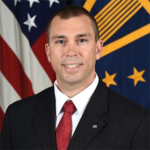
Director
Space Development Agency (SDA)
Dr. Derek M. Tournear, Director, Space Development Agency (SDA)Dr. Derek Tournear is the Director of the Space Development Agency (SDA). Established in March 2019, is responsible for unifying and integrating the Department’s space development efforts, monitoring the Department’s threat‐driven future space architecture, and accelerating fielding of new military space capabilities necessary to ensure U.S. technological and military advantages in space.
Dr. Tournear most recently served as Assistant Director of Research and Development for Space within the Office of the Under Secretary of Defense for Research & Engineering where he was responsible for coordinating all DoD efforts in space, and initiating programs to address critical gaps.
Dr. Tournear previously held leadership roles in industry,
most recently the director for Harris Space & Intelligence (SIS) research & development. SIS was a $2B business focused on providing advanced technical solutions addressing the top National Security threats from underwater to outer space.
Prior to industry, Dr. Derek Tournear was a Senior Program Manager (SNIS‐HQE) at the Intelligence Advanced Research Projects Activity (IARPA) in the Office of the Director of National Intelligence (ODNI). At IARPA, Dr. Tournear served as a senior scientist for space activities and space technologies in the Office of Smart Collection.
Dr. Tournear was previously a Program Manager for the Defense Advanced Research Projects Agency (DARPA), Tactical Technology Office and Strategic Technology Office. At DARPA, he initiated and directed a large portfolio of program, with an emphasis on sensors and space.
He has professional experience at Los Alamos National Laboratory (LANL) managing intelligence and defense programs.
Dr. Tournear has a Ph.D. in physics from Stanford University and a B.S. from Purdue University. In 2010 he received an “Outstanding Alumnus” award from Purdue University and a 2008 DARPA award for “Outstanding Accomplishments in a Systems Technology Area.” Dr. Tournear is a 2011 recipient of the Secretary of Defense Medal for Exceptional Public Service, and a 2012 recipient of the Office of Director of National Intelligence Award for Exceptional Public Service.

Materiel Leader, Commercially Augmented Space
Space & Missile Systems Center (SMC)
Lt. Col. Tim Trimailo, Materiel Leader, Commercially Augmented Space , Space & Missile Systems Center (SMC)Lieutenant Colonel Tim Trimailo is the Materiel Leader, Commercially Augmented Space Inter-networked Operations (CASINO) program, Innovation and Prototyping Directorate, Space Development Corps, Space & Missile Systems Center (SMC), Los Angeles Air Force Base, CA. In this role, Lt. Col. Trimailo manages the Space Force investment in DARPA’s Blackjack program, which will demonstrate military utility of a proliferated Low Earth Orbit (LEO) satellite architecture. In parallel, he is developing foundational prototypes and concepts of operations for future operational constellations leveraging Blackjack lessons learned and industry investment in proliferated LEO technology.
Since graduating from the United States Air Force Academy in 2005, Lt. Col. Trimailo has served in space acquisitions, operations, and staff assignments at the National Reconnaissance Office, Schriever Air Force Base, the Pentagon’s Air Force Legislative Liaison Office, and twice now at SMC. He and his wife, the former Lori Young of Wichita, KS, reside in Redondo Beach, CA, and have two kids.

Vice President of Space & Satellite Broadband
Viasat
Ric VanderMeulen, Vice President of Space & Satellite Broadband, ViasatRichard (Ric) A. VanderMeulen is the Vice President of Space & Satellite Broadband, Viasat Inc., a global broadband service and technology company. Viasat is the world’s largest operator of GEO Satellite Communication Capacity.
Since 2010, Mr. VanderMeulen is a strategy and thought leader in Viasat’s efforts to serve government and commercial markets with best available broadband networks extending reach and accessibility of broadband internet service, globally. He is engaged in the company’s innovations in designing highest-capacity satellites, secure ground infrastructure, and terminal technologies to provide broadband to fixed and mobile customers. He applies Viasat’s High Throughput/Capacity Satellite technologies to US Government and International markets for Ground Segment, Customer Premise Equipment, and highly assured Satcom-as-a-Service solutions.
He is an avid proponent of the Space and Satellite Communication industry, has published numerous papers on Space resilience and deterrence, and served on Boards of several industry organizations including Space & Satellite Professionals International, Satellite Industry Association, and Mobile Satellite Users Association.
Mr. VanderMeulen joined Viasat in 2001, as Vice President General Manager for Viasat’s Government Satcom business responsible for all Viasat’s government Satcom programs through 2009. Bringing both engineering and business expertise during his more than 35 years in the Satellite Communications industry, Mr. VanderMeulen has held senior general manager and program manager positions at Viasat, The Boeing Company responsible for Boeing’s Space and Communication Group new ventures, and Rockwell Collins responsible for design completion and production of multiple Satcom Systems including Milstar, SMART-T, SCAMP, and others.
Ric was born in Detroit, Michigan. He attended the University of Virginia and graduated in 1977 with a Bachelor of Science in Applied Mathematics and Computer Science.
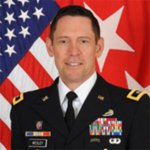
U.S. Army Retired
US Army
Lt. Gen. Eric Wesley, U.S. Army Retired, US ArmyEric J. Wesley has transitioned from the Army as the Deputy Commanding General of Army Futures Command and the Director of the Futures and Concepts Center. In this capacity he was charged with analyzing and assessing the future global security environment, developing a concept for the Army’s role in national security, designing the future Army, and publishing a strategy and pathway to achieve it. He currently serves as the Executive Vice President of Flyer Defense, LLC, a leading developer of electric combat vehicles. In his role, Eric serves to build a consortium of industry partners who will electrify the future battlefield. He is also a member of the Council on Foreign Relations.
Prior to his last assignment in the Army, LTG Wesley served for over 20 years in senior leadership positions of Army organizations from the battalion to the Army enterprise level. These positions included Commander, Maneuver Center of Excellence at Fort Benning, Georgia where he was responsible for the leadership and welfare of over 40,000 Soldiers, families members, and government employees with a budget exceeding $200m; Deputy Commanding General and Senior Mission Commander of the 1st Infantry Division, Fort Riley, Kansas where he was responsible for the leadership and welfare of over 25,000 Soldiers, families members and government employees with a budget exceeding $140m; and Commander of the 1st Brigade, 1st Infantry Division, Fort Riley, Kansas – a 5,000 Soldier organization.
LTG Wesley has also served in very senior staff roles characterized by significant strategic planning. He served in the White House as the Director for Afghanistan on the NSC staff where he was responsible for all military policy, strategic planning, and inter-agency integration including policy for NATO and the Afghan Army. He twice served as the lead planner in Afghanistan for two theater commanders, designing the campaign and providing strategic and operational options up to the President of the United States. He has significant experience in budgeting and programming for the United States Army as he was the deputy to the senior auditor of Army budgets and programming in 2014 and 2015. He later led the task force that designed and formed the newest 4 star command – Army Futures Command. And he twice served on the Chief of Staff of the Army’s transition team in 2015 and 2019, the latter of which he led and directed.
His most recent accomplishments include the enterprise reconfiguration for how the Army modernizes over the next decade; the drafting of the Army’s future operating concept which describes the Army’s future design and the manner in which it must fight; and drafting the Army’s modernization strategy for the next 15 years.
A graduate of the United States Military Academy at West Point, LTG Wesley holds two masters degrees – one in International Relations and the other in National Security Policy. He is a Distinguished Graduate from the Army War College. He has been awarded the Distinguished Service Medal, the Legion of Merit (3), the Bronze Star for valor, and the Bronze Star (2).